When members of NDN Collective showed up in Washington, DC on the week of November 6th to meet with decision-makers, we were prepared. We were in the US Capitol for a reason: to share our stories and advocate for Indigenous communities on key issue areas.
While NDN Collective might be well-known for our grassroots organizing and actions on the ground, our policy work has been an essential component of advancing the goals of our frontline actions. Every campaign we have, every protest we hold, there is always a federal component tethered to it. There are federal policies that need to be passed in order for change to be solidified, to ensure protections and resources are secured for Indigenous communities.
Jade Begay is the Director of Policy and Advocacy for NDN Collective. She has extensive knowledge and experience working in DC alongside policymakers and building relationships. Jade is one of those who organized meetings and brought the rest of the NDN team to the table. To her, sharing our work with those who may not be aware of the scope of NDN Collective is part of that relationship-building.
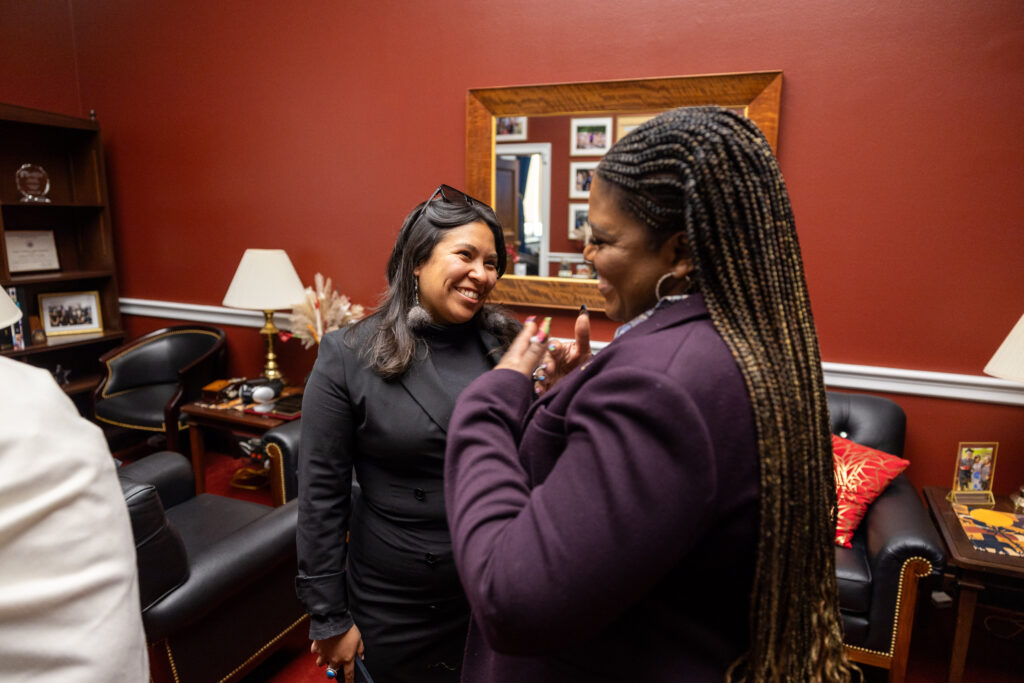
“We have so many methods for sharing our story but it makes such a difference to show up in person and have a conversation with decision makers to tell them what we’re about and get to the heart of why we do what we do,” Jade said. “In some spaces people may only see the activism or philanthropic work but there are so many different aspects to NDN Collective’s ecosystem.”
During Impact Days, a week-long trip to DC to meet with Congress members and federal agencies, we brought a host of priorities facing Indigenous communities. A few of these included thanking those who called for a ceasefire in Palestine; asking for a federal investigation into police killings in Rapid City, South Dakota; support for the return of Valles Caldera to the Pueblo of Jemez; seeking additional support for a proposed Mineral Withdrawal for public land around the Pactola Reservoir in the Black Hills; NDN Collective’s Indigenous Climate and Just Transition Fund; and our community development work through our impact loans and investments.
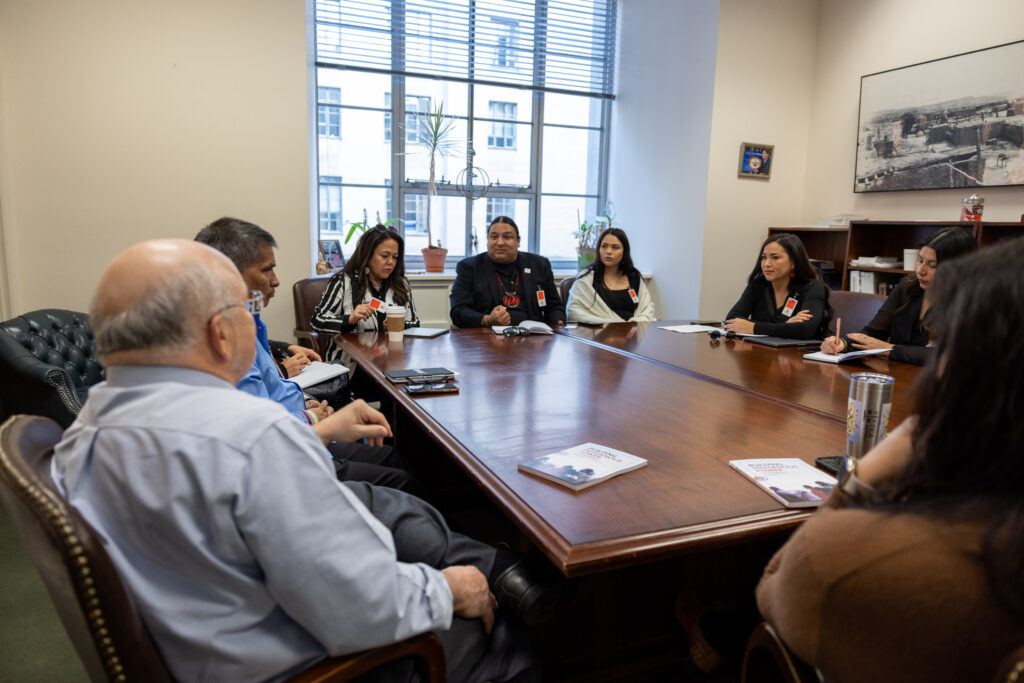
The team attended 24 meetings total with lawmakers, staffers, and federal agencies. Additionally, some members of NDN Collective also met with media outlets to build connections and bring awareness to our work. Sharing our work with journalists based in DC provided an avenue to elevate our stories and expand the reach of our priorities.
Each of the priorities brought by our team ranged from direct support to Indigenous communities and land to simply sharing more about our work as a collective. At NDN Collective, we are not waiting to ask for a seat at the table, we are coming to the table prepared with our data and the work we’ve already accomplished.
Click here to see NDN Collective’s priorities during Impact Days in DC:
- Indigenous-led Climate Solutions & Climate Investments
- Regional Priorities in the Southwest and Hawai’i
- Protection of the Greater Chaco Region
- Return of Valles Caldera to the Pueblo of Jemez
- Martinez & the Hate Crime in Espaniola
- Freedom for Leonard Peltier
- Pactola Réservoir Mineral Withdrawal
- Rapid City vs. Racism
- 2023 US Farm Bill Reauthorization and support for Native Hawaiian producers
- Pine Creek Ranch Nevada Water Conservancy
NDN Collective will continue working in these areas and more in the coming year. To stay up to date on these issues please follow us on social media or subscribe to our newsletter.
Earlier this year, NDN Collective reached a 5-year milestone as an organization. To commemorate this, we prepared and released our first ever Impact Report reflecting on our first five years as an organization, from 2018 to 2023. While in DC, we hosted a reception to announce the release of the report and provide additional information for policy makers and Indigenous appointees working in the federal government.
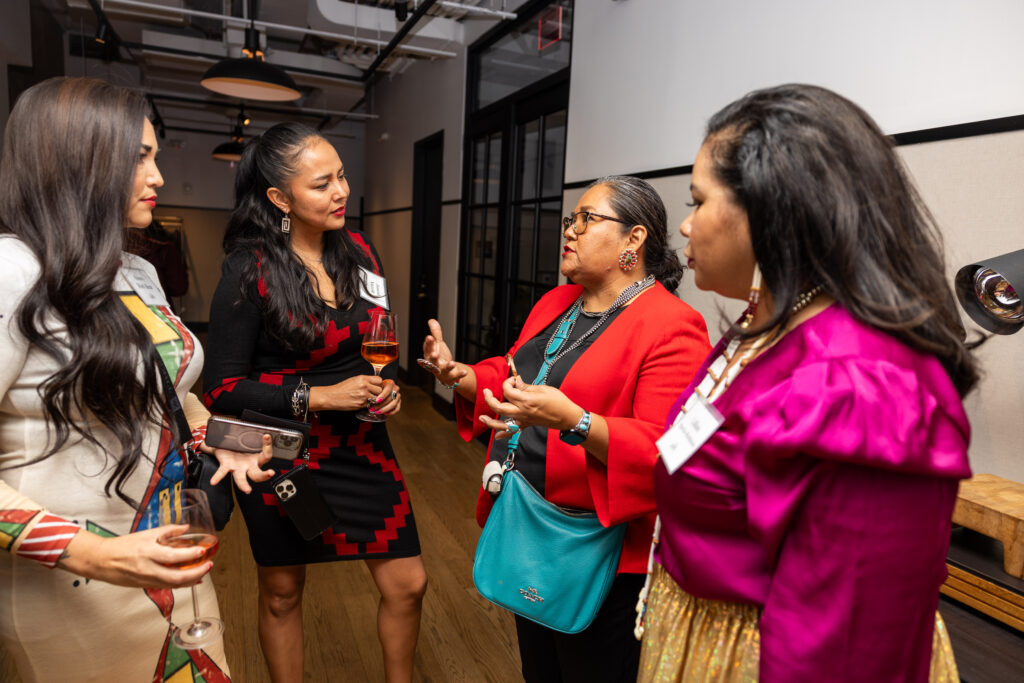
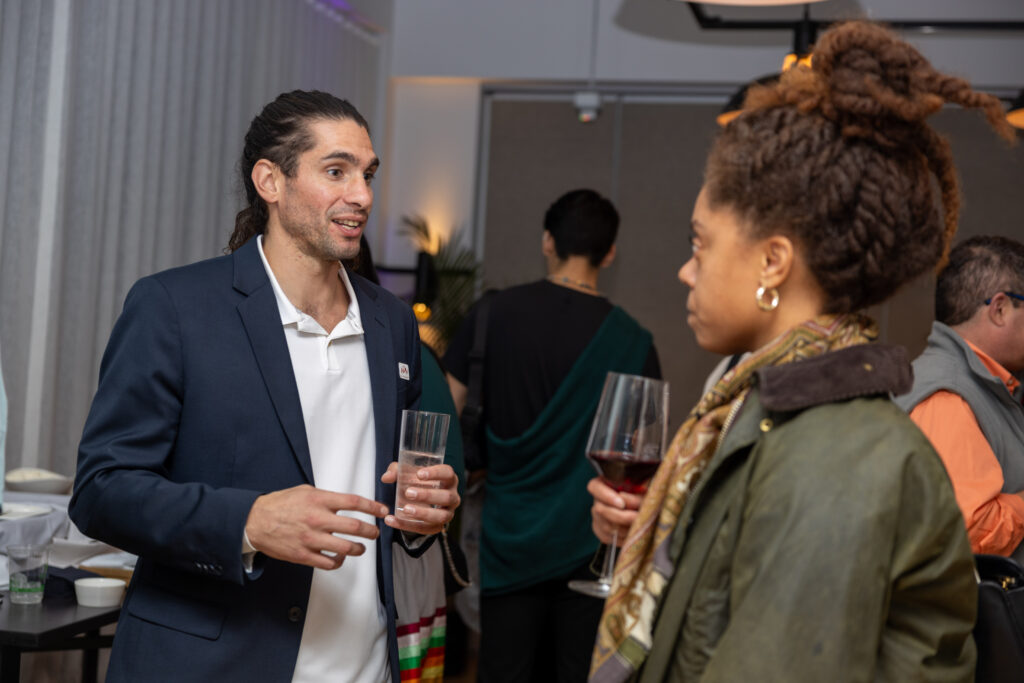
The reception provided an opportunity for staffers and legislators to connect with NDN Collective outside the formal meetings. Announcing the 5 Year Impact Report and celebrating NDN Collective’s first five years showed those working in DC what we have accomplished and the work we will continue to do.
When the NDN Collective team prepared to advocate for Indigenous issues on Capitol Hill, several agreed that DC can feel intimidating. For many in the group, this was their first time meeting with US lawmakers and department officials.
“When grassroots and Indigenous people come to DC, we often wonder, ‘Should I be here? Is this for me?’ That imposter syndrome sets in,” said Nick Tilsen, NDN Collective President and CEO. “I always say to them, ‘Hell yes, we should be here. We deserve to be here.’”
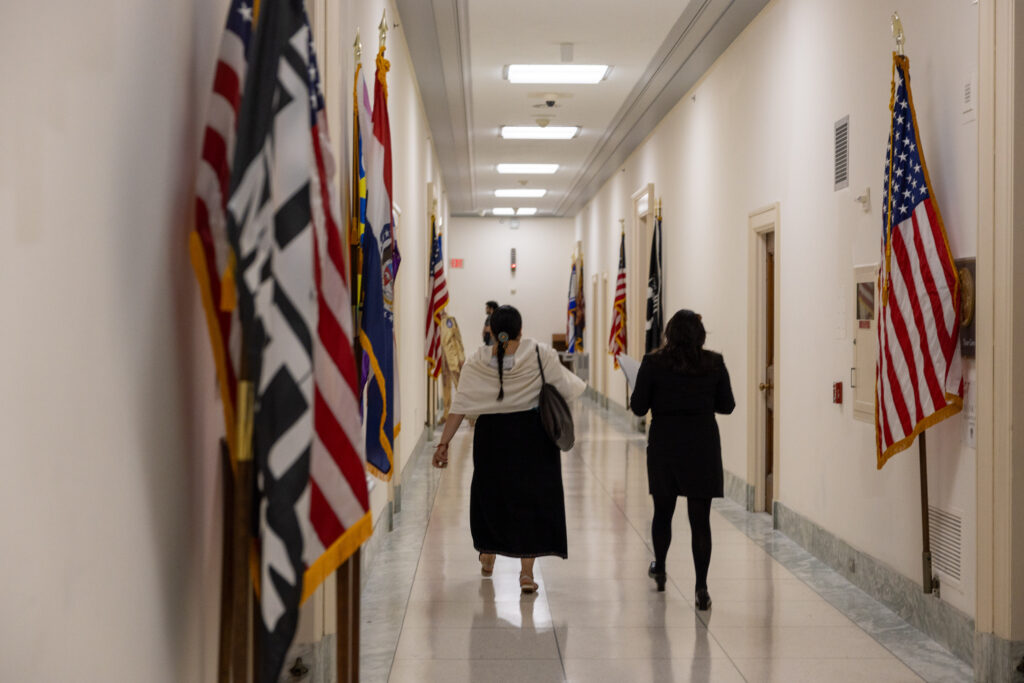
Oftentimes, policy makers are unfamiliar with Indigenous issues, no less, far removed from the issues being uplifted by grassroots movements. This lack of awareness can have catastrophic impacts on the lives, well-being, and health of Indigenous communities and our lands.
“We want to close the distance between what’s happening on the ground and the decision makers in Washington,” Nick said. “We also want to hold the decision makers and the federal agencies responsible whenever they make decisions over the lives and land of Indigenous people.”
Bridging these gaps are part of the larger strategy of these meetings in DC.
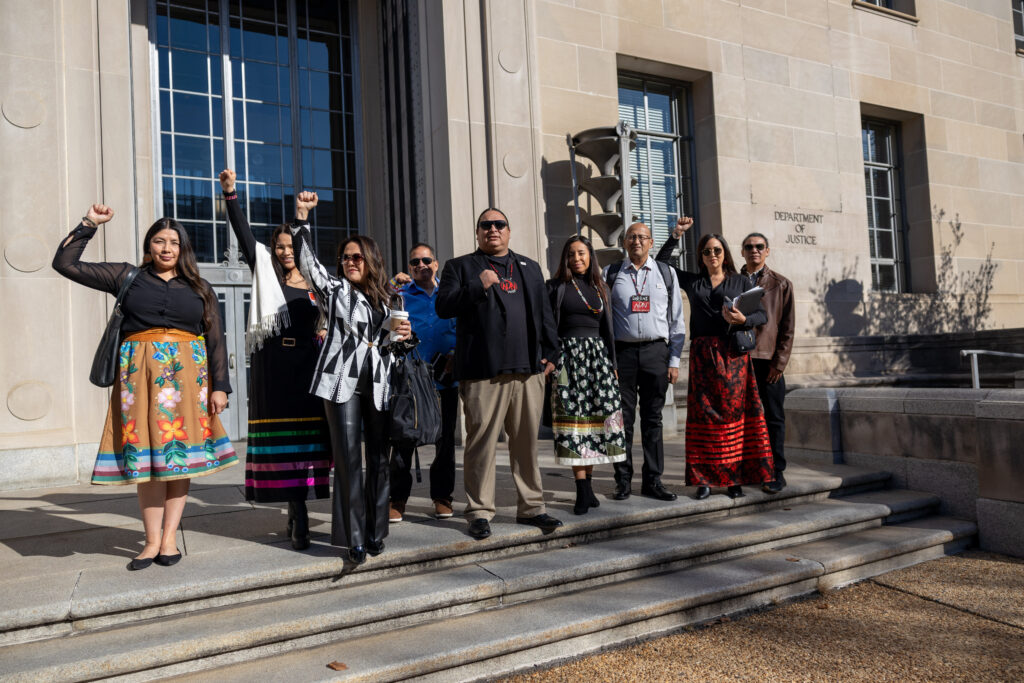
Holly Cook-Macarro, Government Affairs for NDN Collective, has worked in politics for 27 years. Her work in political consulting has built connections between Tribes and policy makers and brought valuable Indigenous perspectives to the table.
“It’s really been a surprise to our team that people [on Capitol Hill] are excited about the work we’re doing. They want to be helpful and they’re watching,” said Holly. “Sometimes folks only see the headlines, right? The action, the protest. But at NDN Collective, we also come armed with facts, with an argument, with an ask, with strategy and a long-term vision.”
The landscape of Indigenous representation in DC is changing, Holly said. There are currently more than 50 Senate confirmed Native American political appointments, including those like Secretary of the Interior, Deb Haaland (Pueblo of Laguna), Mary Peltola (Yup’ik), Tom Cole (Chickasaw), and Sharice Davids (Ho-Chunk). These appointments bring to DC the Indigenous voice that was missing for decades and would be missing otherwise.
However, there is still a need to elevate the work of grassroots movements and direct action.
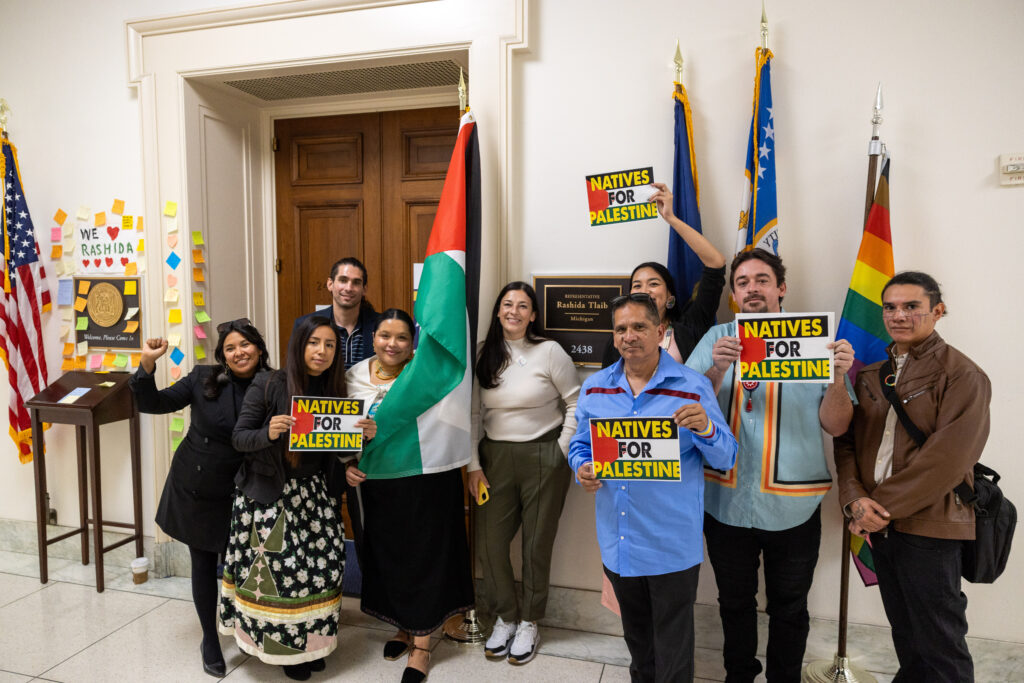
Andy Catt-Iron Shell has been an organizer for nearly all his life, having family occupy Wounded Knee in the 1970s and being present with his own children at Standing Rock in 2016. Andy and his son, Terrell, are local organizers with NDN Collective and both journeyed to DC. He said that while Wounded Knee and Standing Rock brought a lot of power back to Indigenous people, more could have been done following those major events.
“After those historical events, there was something missing and it was the follow up that should happen after something iconic like that,” he said. “They needed to be followed up with advocacy, with policy work to really push political leaders to keep the commitments they made at that time. And because we didn’t do well at pushing that conversation, things just kind of went away.”
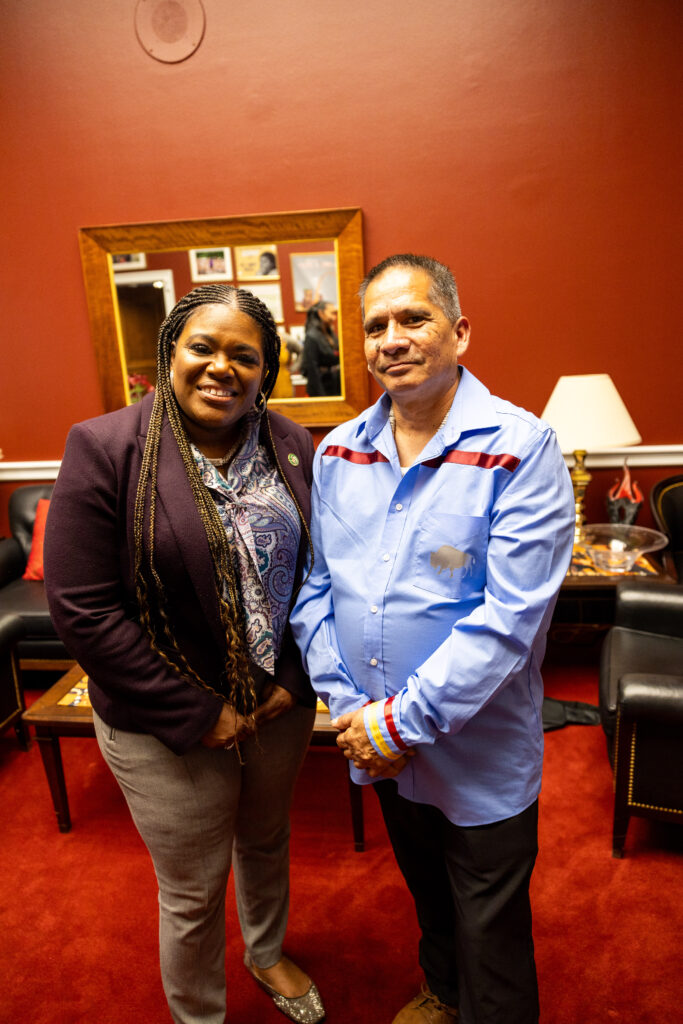
This trip was not Andy’s first advocacy experience. He’d been to DC before to advocate for another policy that supported Indigenous communities. One of his insights in DC as an organizer familiar with political advocacy was to understand the need to reach for connections even with those you disagree with. Finding a common ground with those that might feel at odds could be the difference between your ask or priority getting fulfilled. Andy, along with others from NDN Collective met with Senator Rounds, the Republican Senator of South Dakota.
“He isn’t always friendly with the Native American agenda. He hasn’t always supported us the way that we would like him to,” Andy said. “But there are other things he can agree with, like protecting water and land. We can find common ground among those that some might consider our enemy but we shouldn’t think of them in that way because we’re all in this together.”
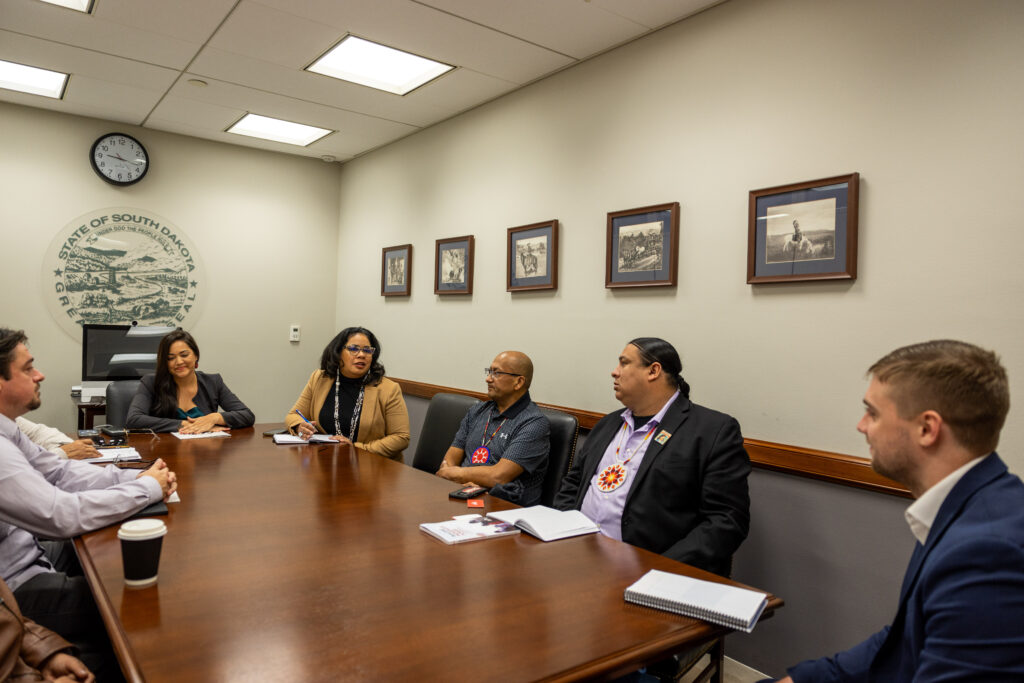
Protecting land and water in South Dakota was one of NDN Collective’s direct asks in DC. To raise additional awareness of returning of the Black Hills to the Oceti Sakowin, NDN Collective hosted a film screening of Lakota Nation vs. the United States. The film, released earlier this year, features Nick Tilsen and illuminates the decades-long fight for the Black Hills – the most sacred place to the Lakota people.
The film provides necessary context to a priority NDN Collective brought to Washington: the Pactola Reservoir mineral withdrawal. In March 2023, the US Forest Service along with the Bureau of Land Management proposed a 20,000 acre mineral withdrawal around the Pactola Reservoir near Rapid City, South Dakota.
We have so many methods for sharing our story but it makes such a difference to show up in person and have a conversation with decision makers to tell them what we’re about and get to the heart of why we do what we do.
Jade Begay, Director of Policy & Advocacy for NDN Collective
This proposal would remove all future rights for mining, drilling, and exploration in the proposed area for up to 20 years. If this proposal is approved it will preserve and protect Pactola, the primary source of drinking water for the Pine Ridge Indian Reservation, Rapid City, Ellsworth Air Force Base, and tens of thousands of people downstream.
“Since anyone has been keeping track, mining is far and away the biggest water polluter there is,” said Taylor Gunhammer.
Taylor is one of the local organizers on NDN Collective’s Actions Team and his main focus in DC was to tell lawmakers to sign and support the Pactola Reservoir mineral withdrawal.
“If we’re able to successfully pass this proposal, that drinking water would be protected for up to 20 years,” he said. “So we’re here to educate decision makers and people who shape policy on how critical it is to protect this source of water for so many people and that it exists on sacred treaty land which is being threatened in the push for American progress.”
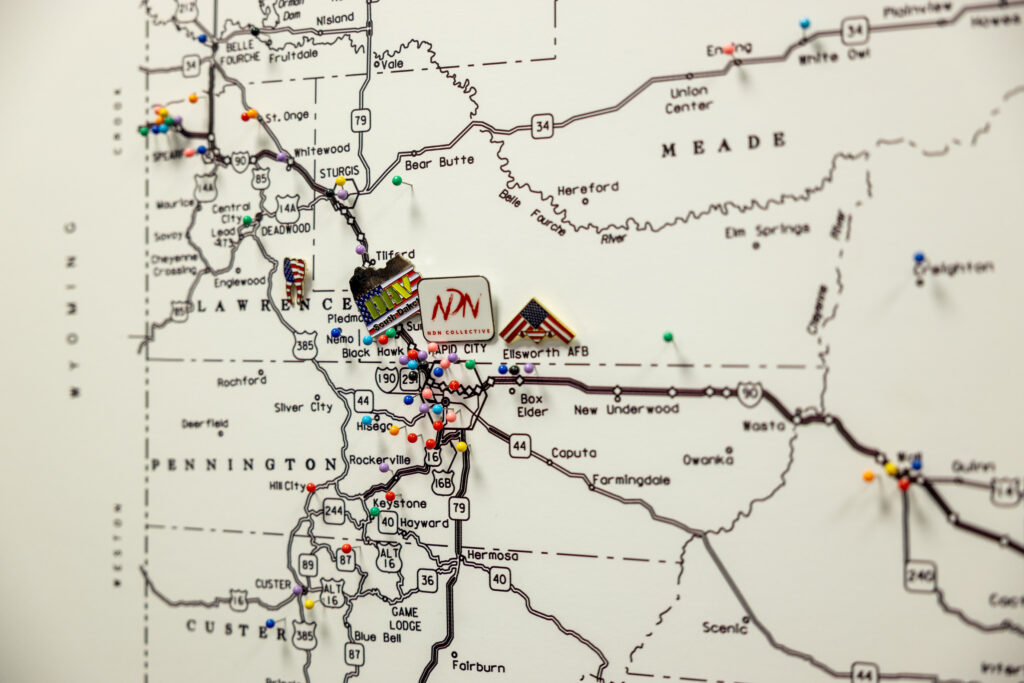
The prevention of mining by any means necessary in the He Sapa, protects that sacred land. While this isn’t the direct return of the Black Hills we are ultimately seeking, this piece of legislation still provides a layer of protection that could be expanded in the future through additional policy.
Meetings with lawmakers and advocating for certain priorities are just one of the avenues used to create change. Building these relationships and connections in DC provides an opportunity to apply our lived experiences as Indigenous Peoples to policy making, informing the laws and policies that will impact our daily lives.
We are experts in our fields and can deliver first-hand, on the ground experience to people who are far removed from some of these issues. We as Indigenous people can use our stories, experiences, and knowledge to guide people in DC when they pass laws that affect the lives of millions or stop them from causing additional harm.
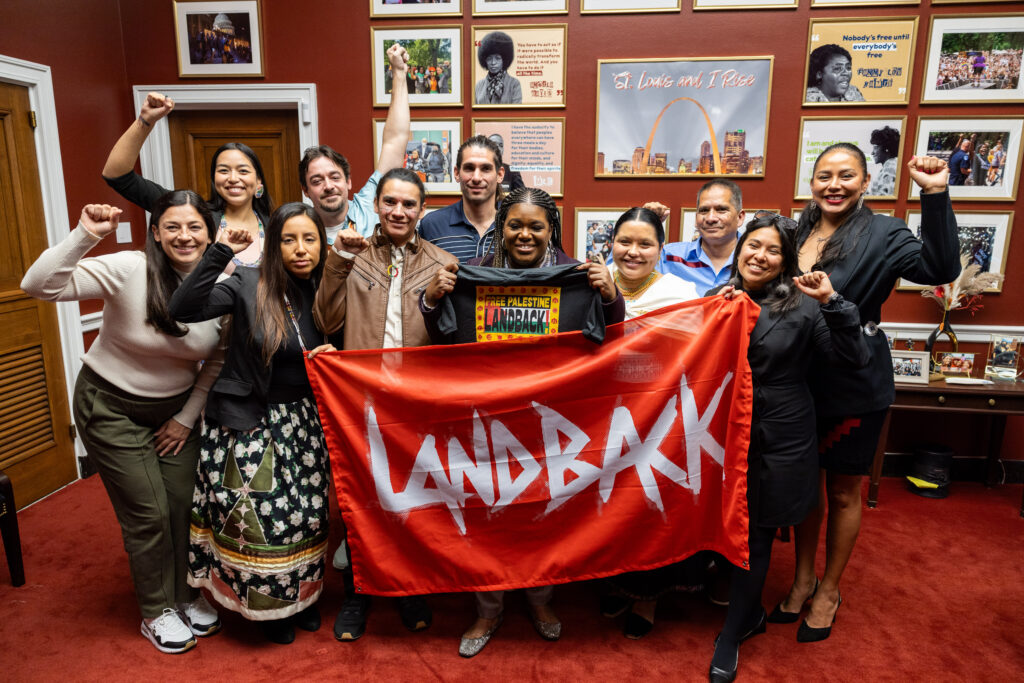
NDN Collective’s position on the frontlines informs the way we approach these meetings and bolsters our proposed solutions. By providing our perspective in these meetings we are able to highlight what action Indigenous communities and Tribes need policy makers and government officials to take and humanize an issue those in Washington may not have even heard of.
“As Indigenous people, no one knows our story better than we do,” Holly Cook-Macarro said. “There is no one who can tell that story better than us.”
NDN Collective Impact Days Photo Gallery
Photos by Angel White Eyes for NDN Collective
Click on photos to enlarge.
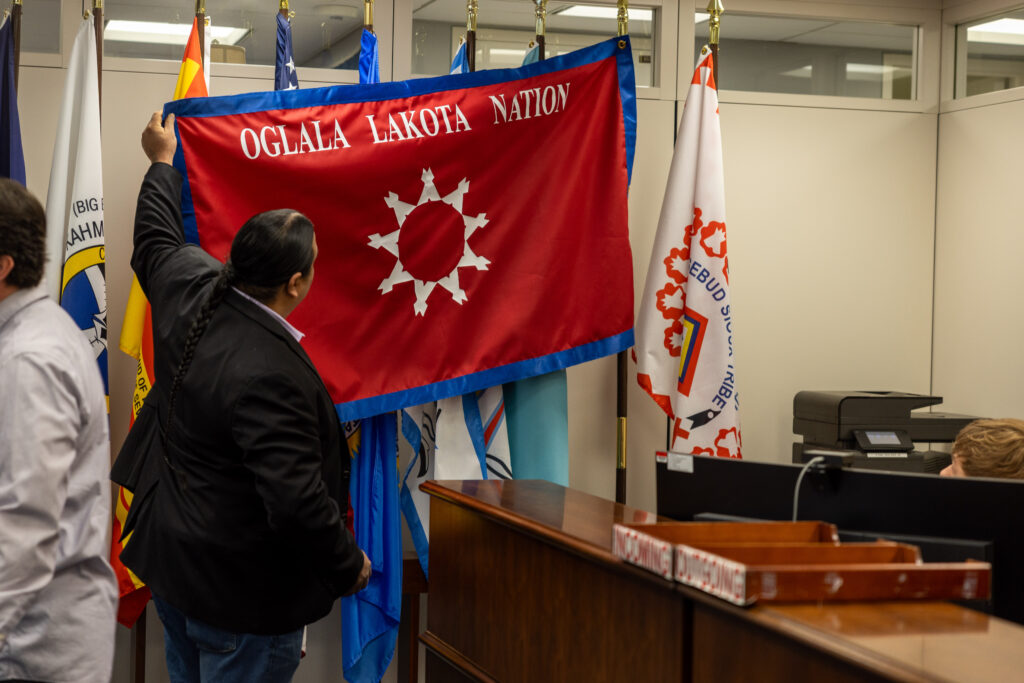
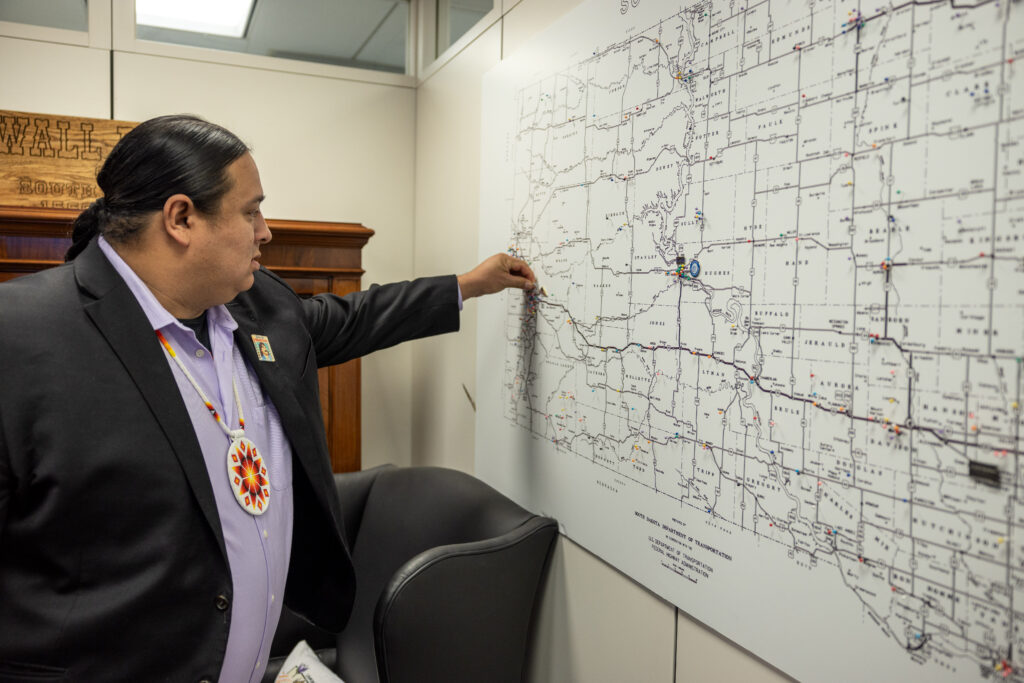

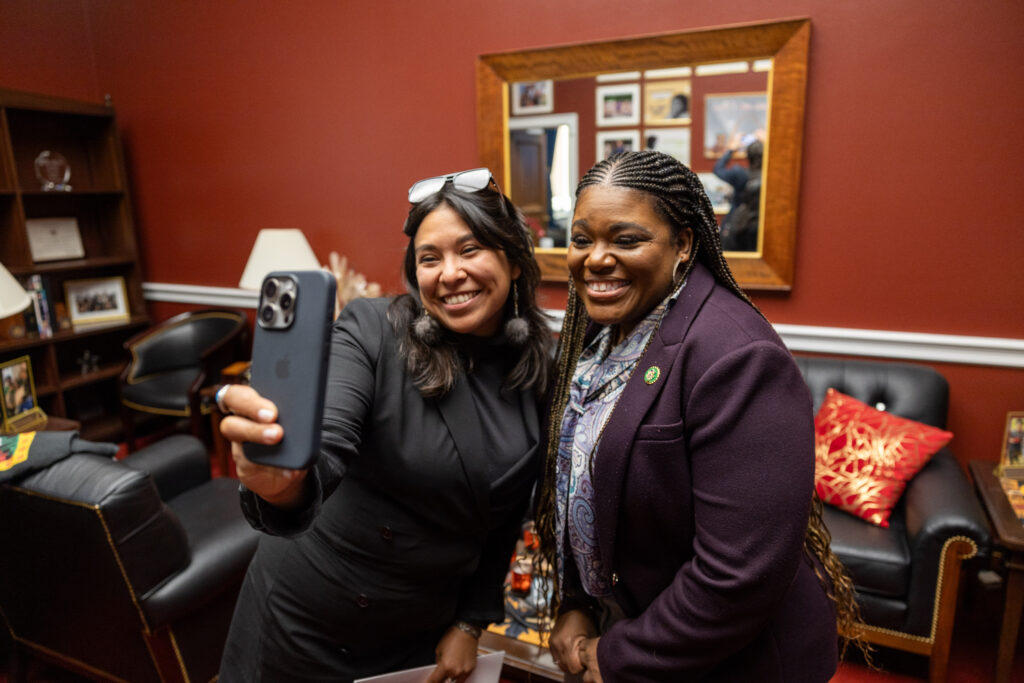
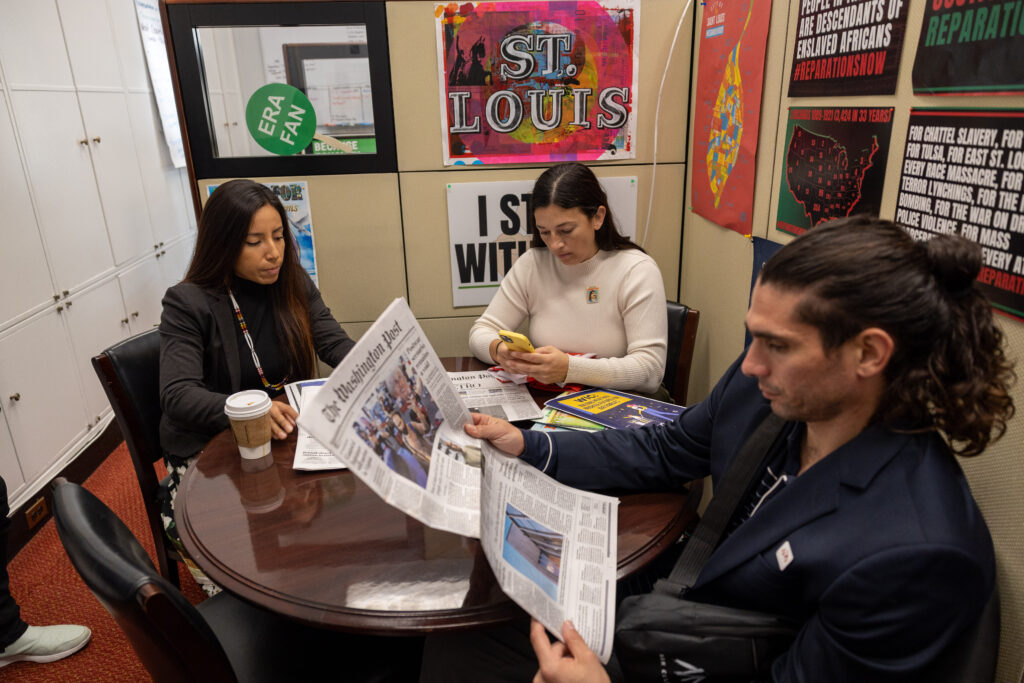
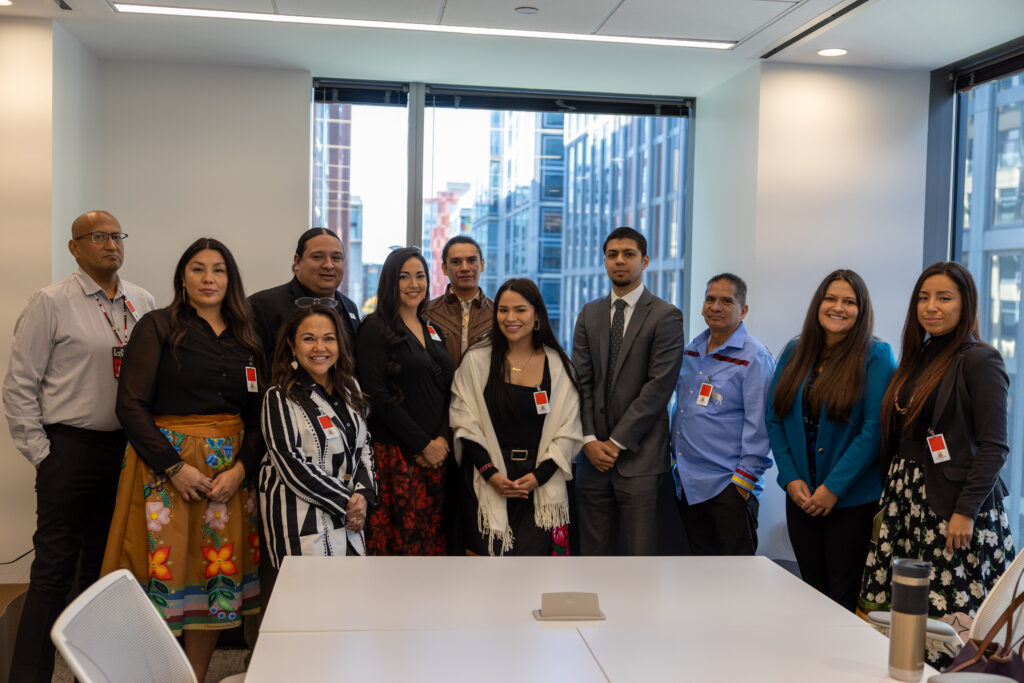
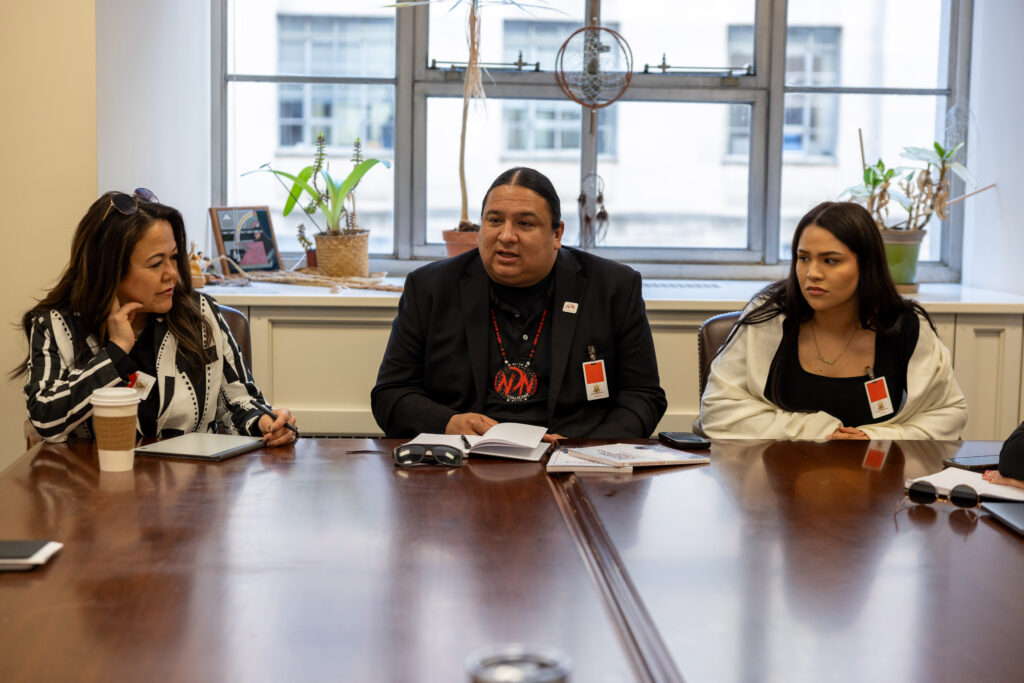
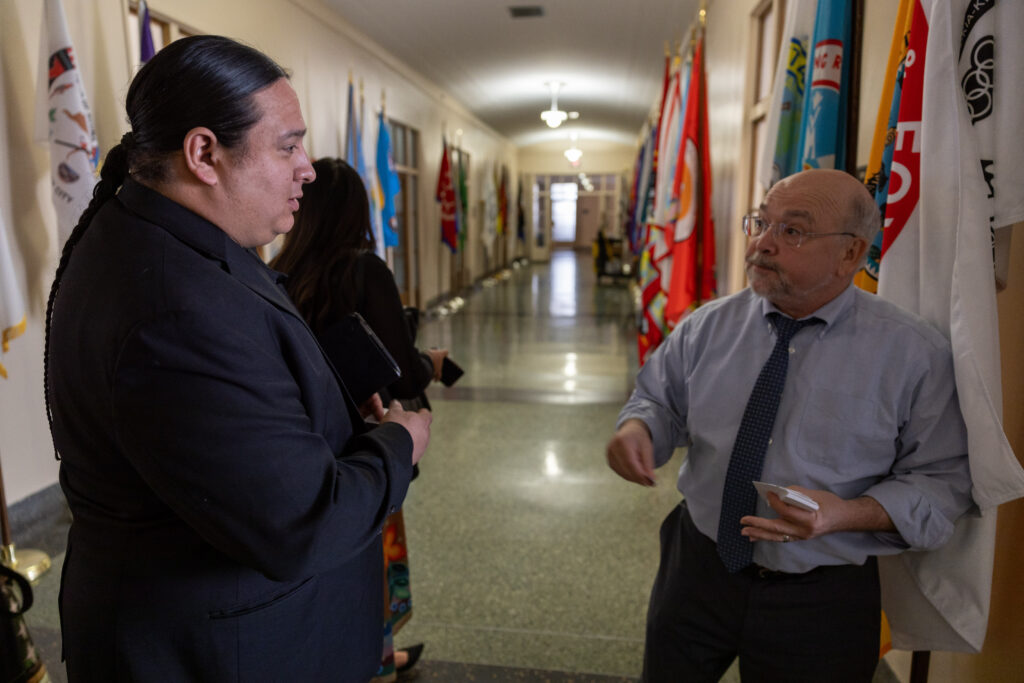
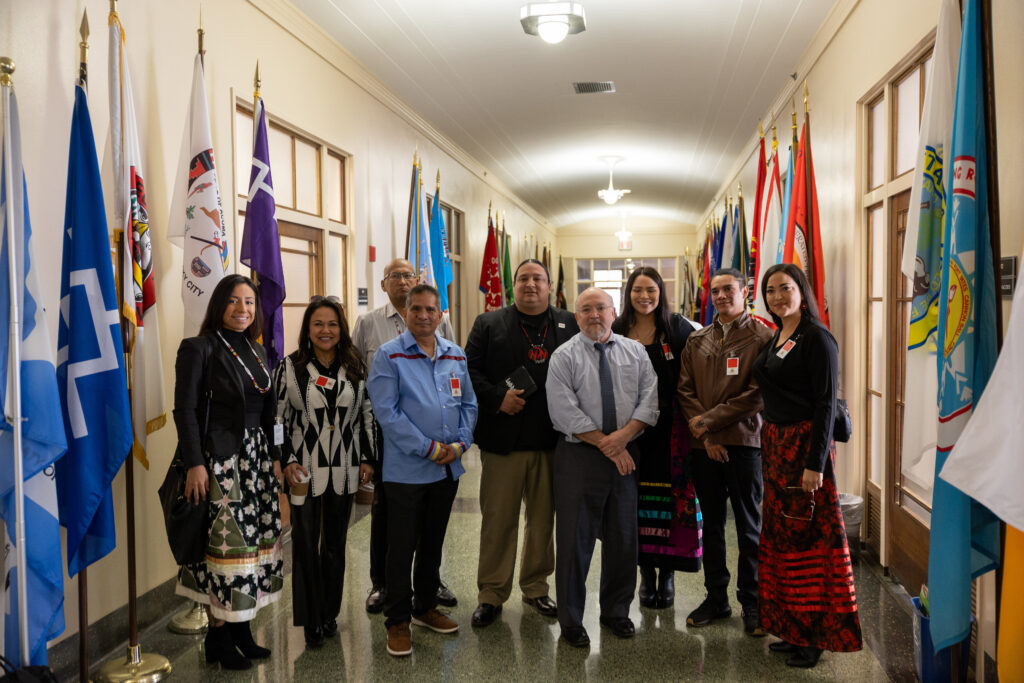
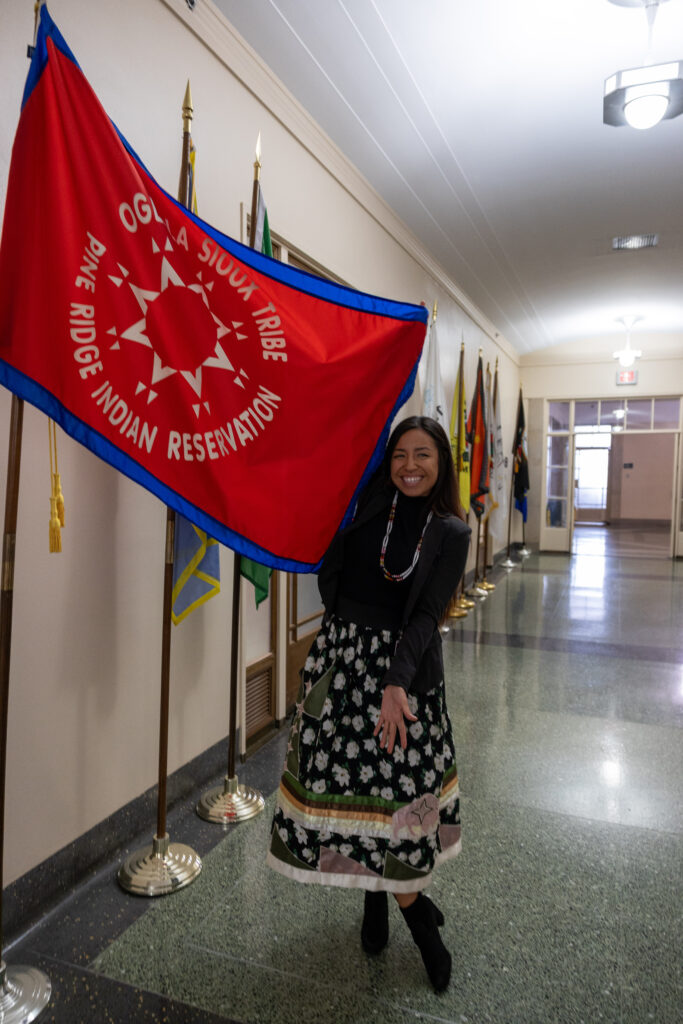
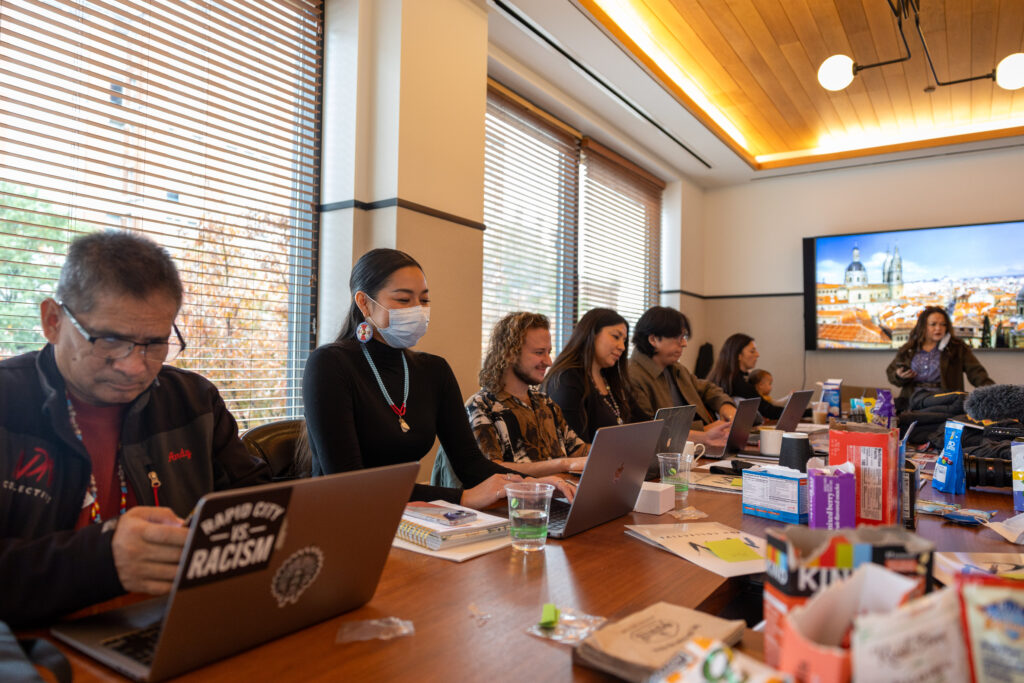
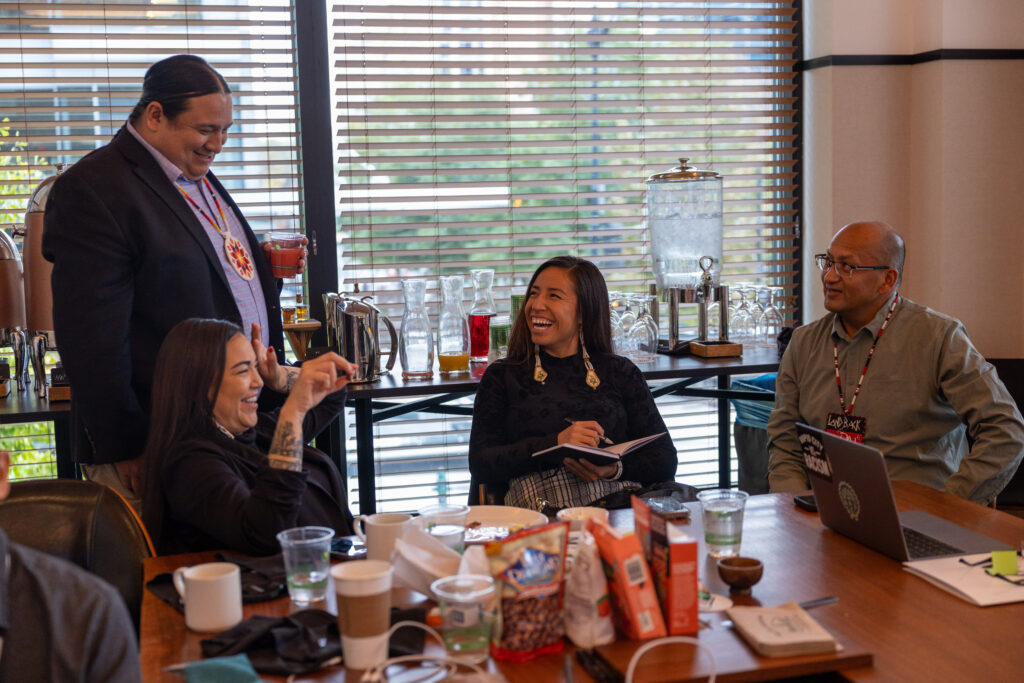
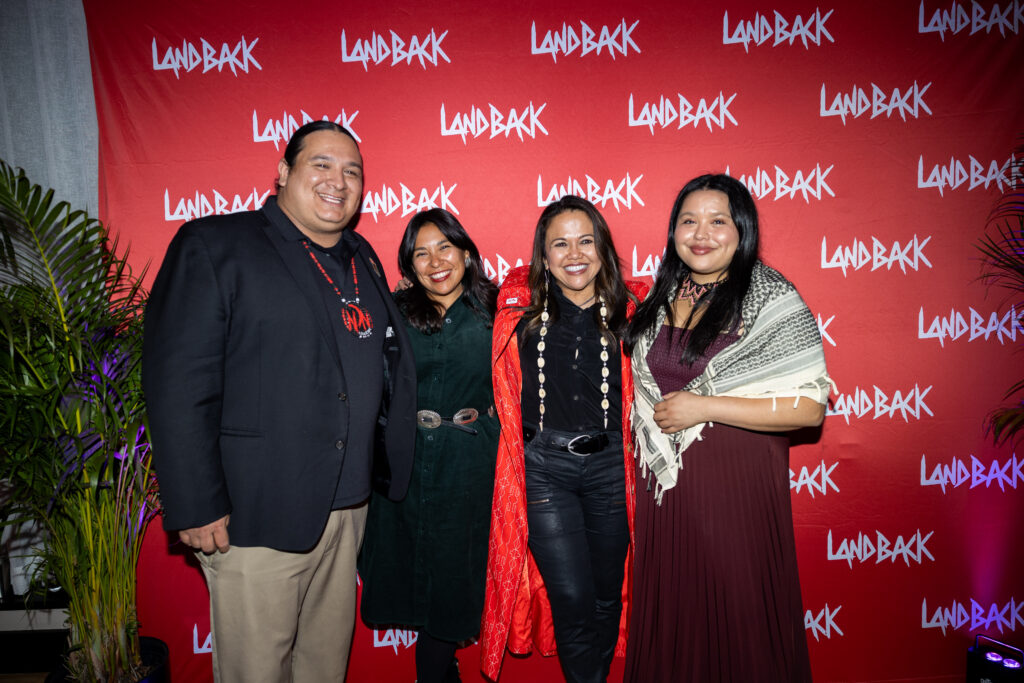
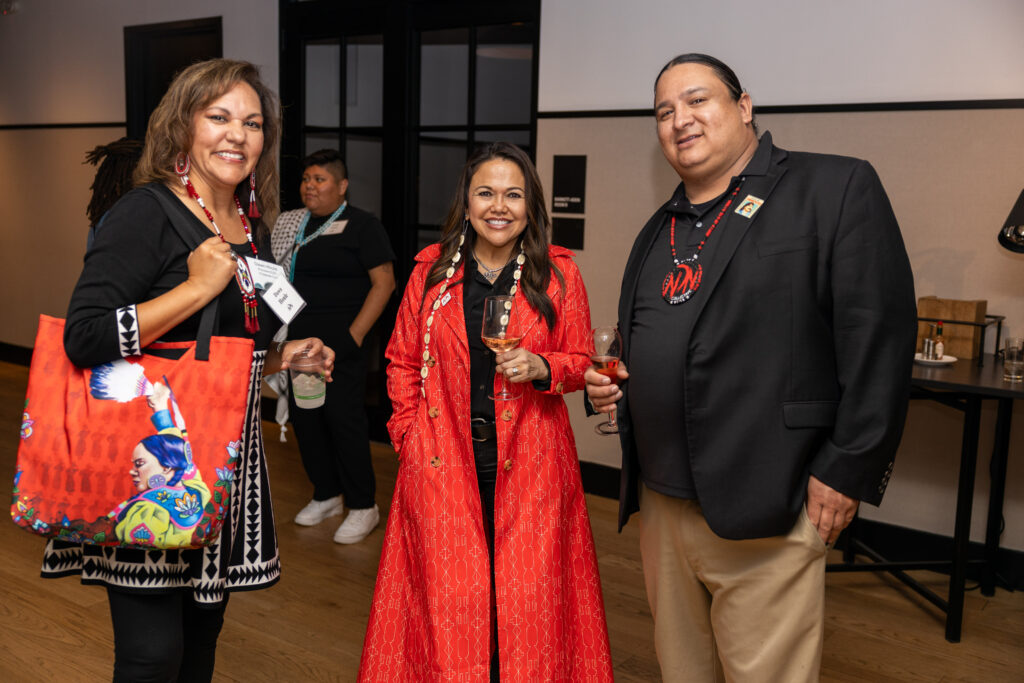
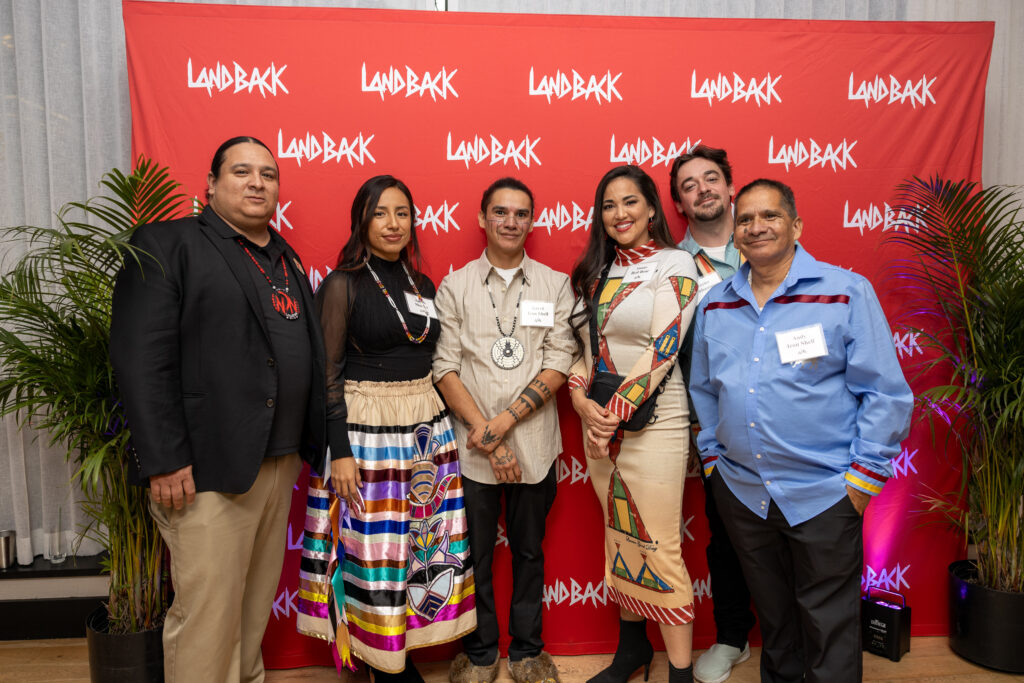
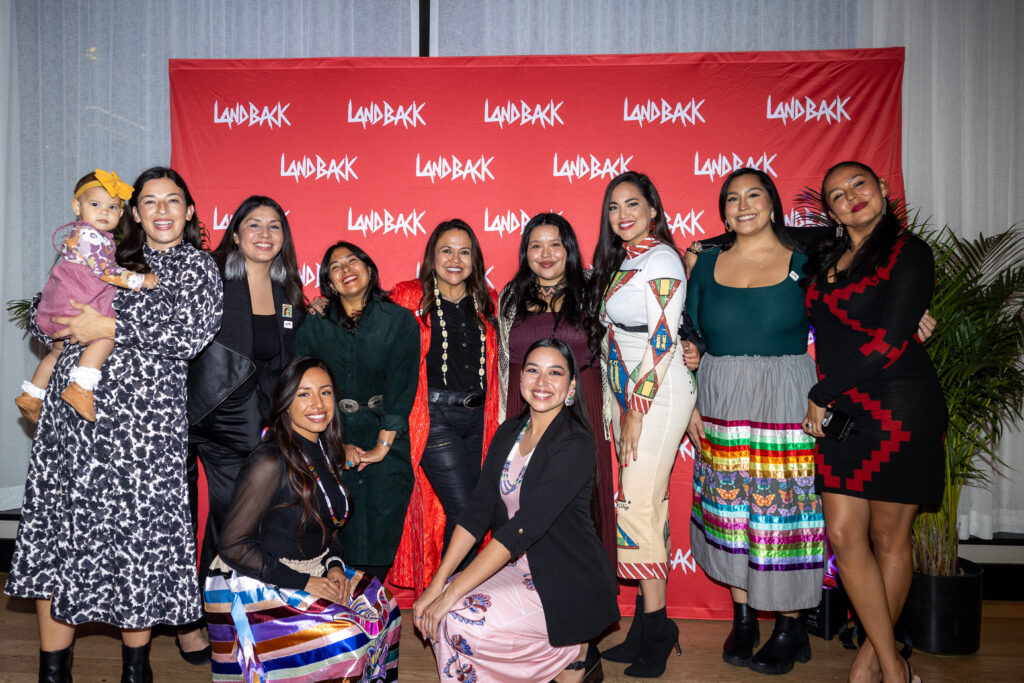
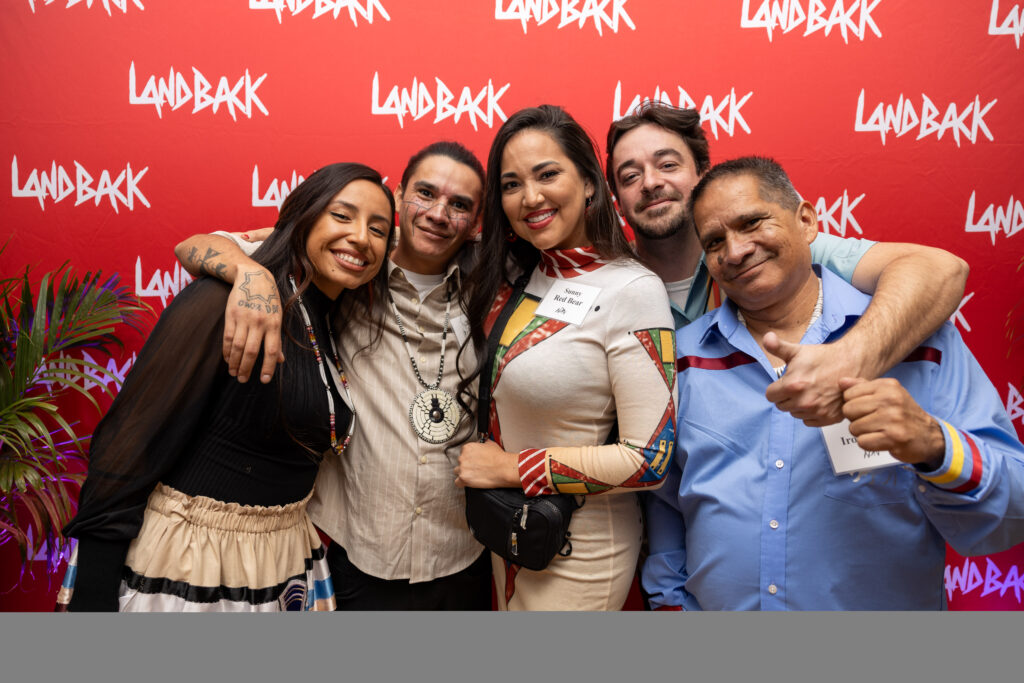
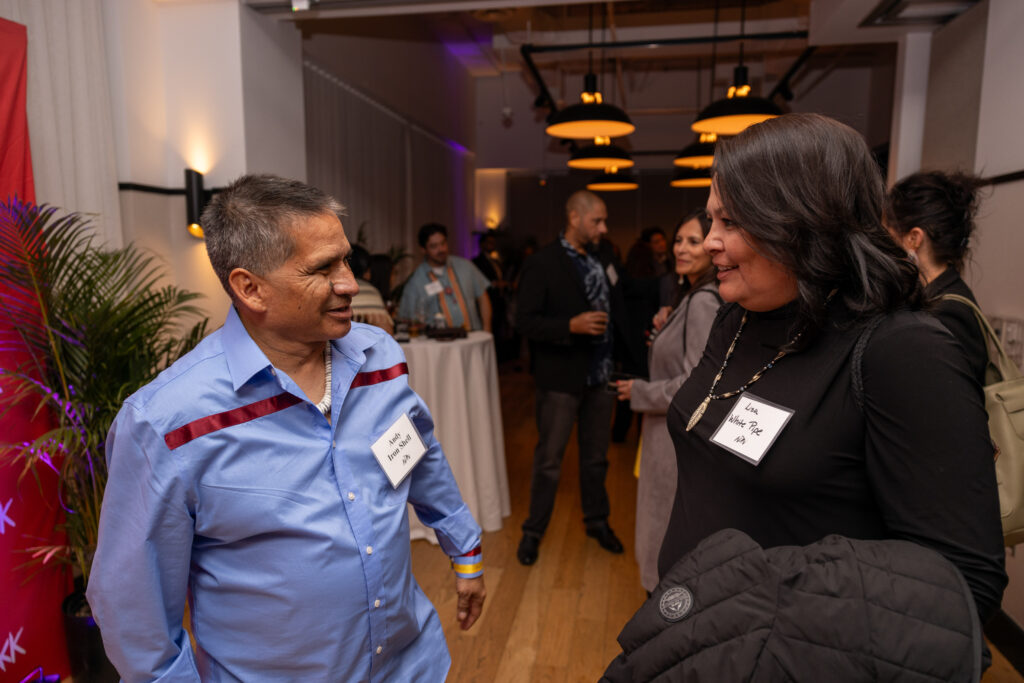
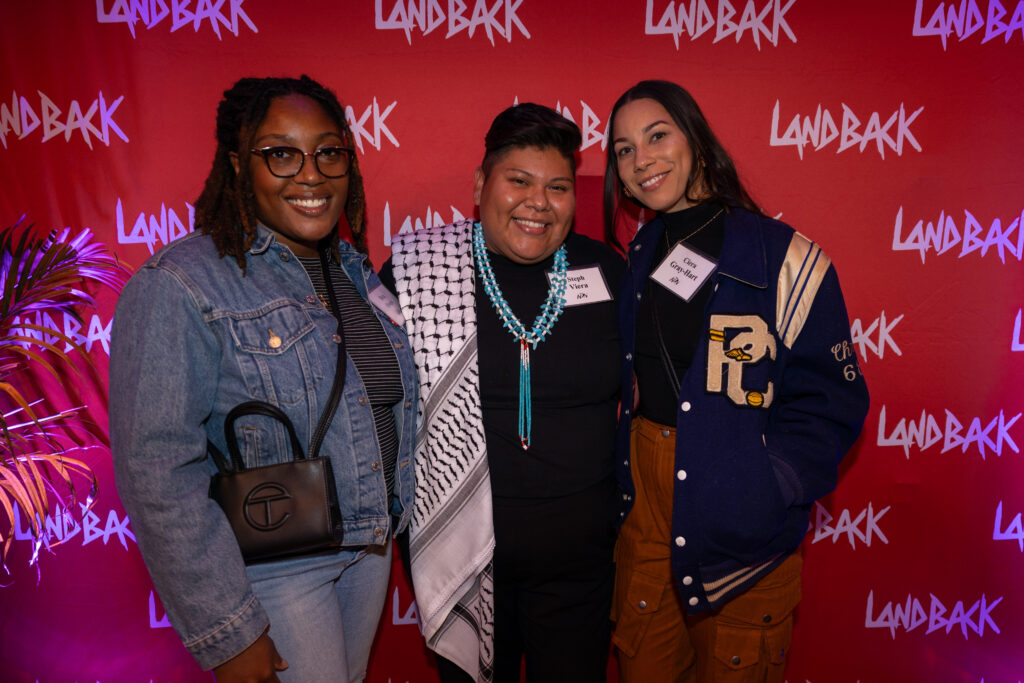
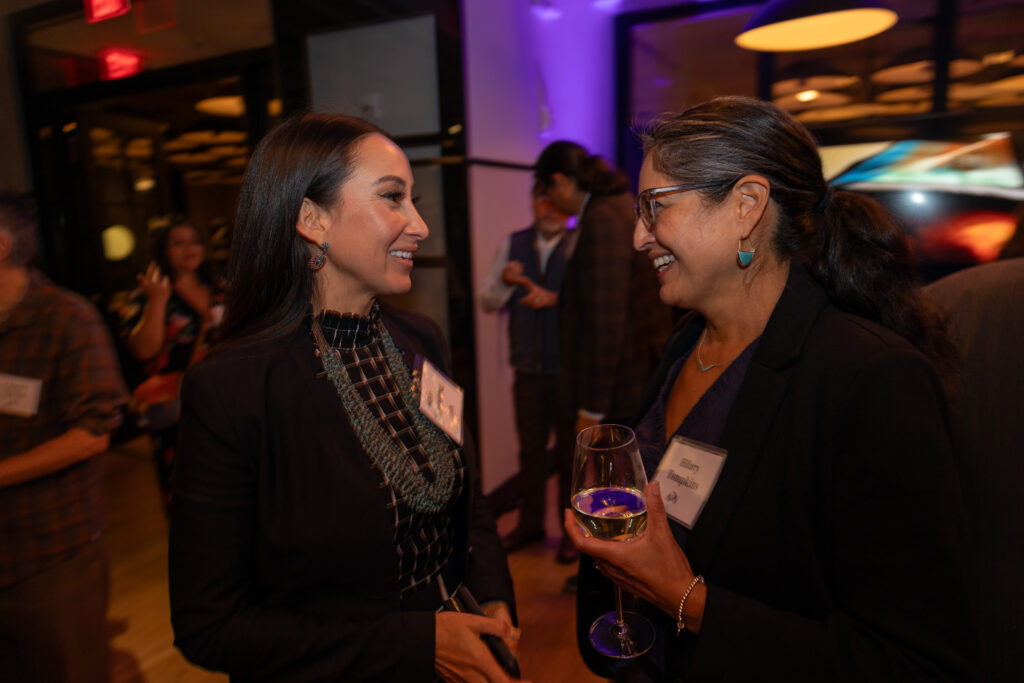
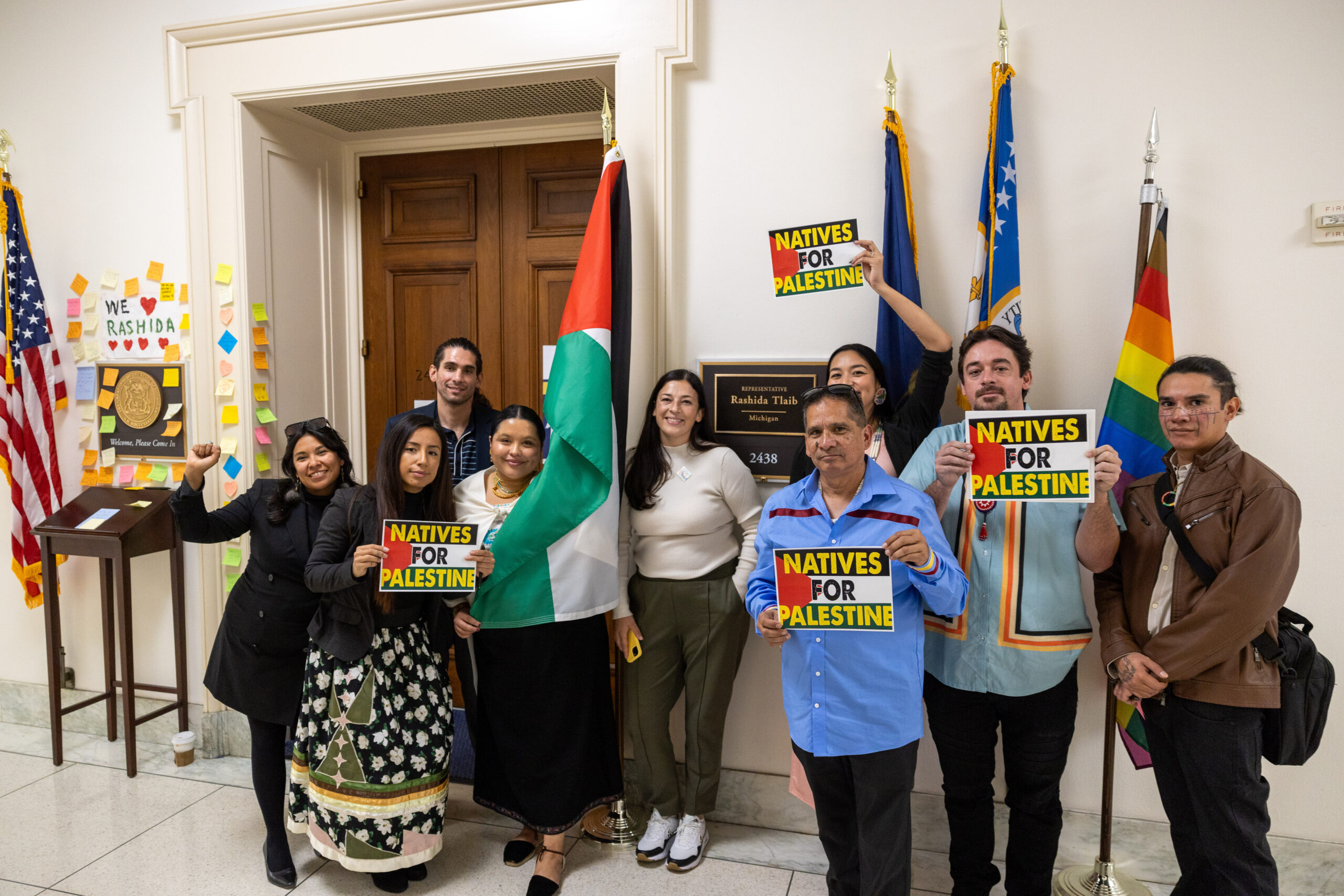
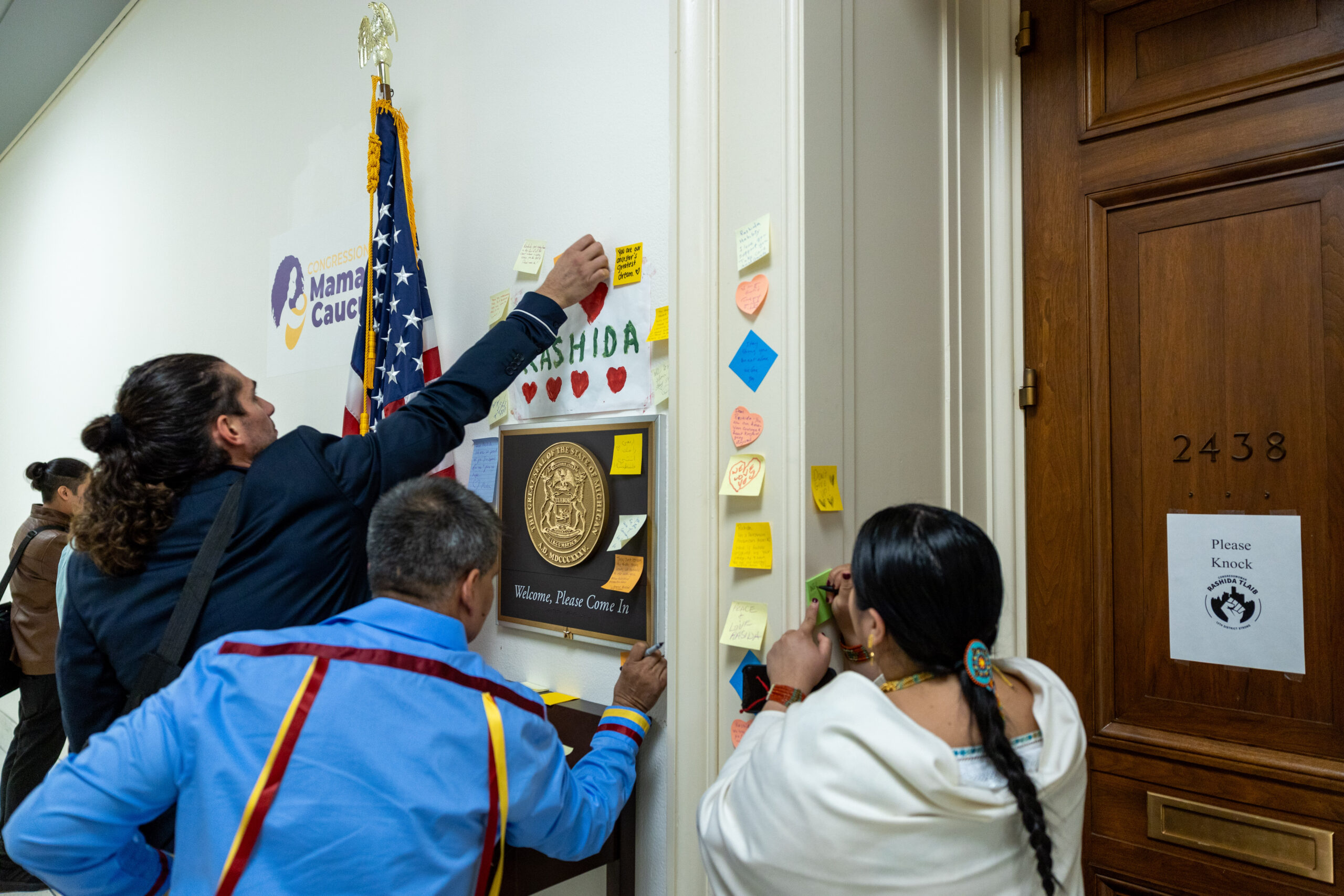
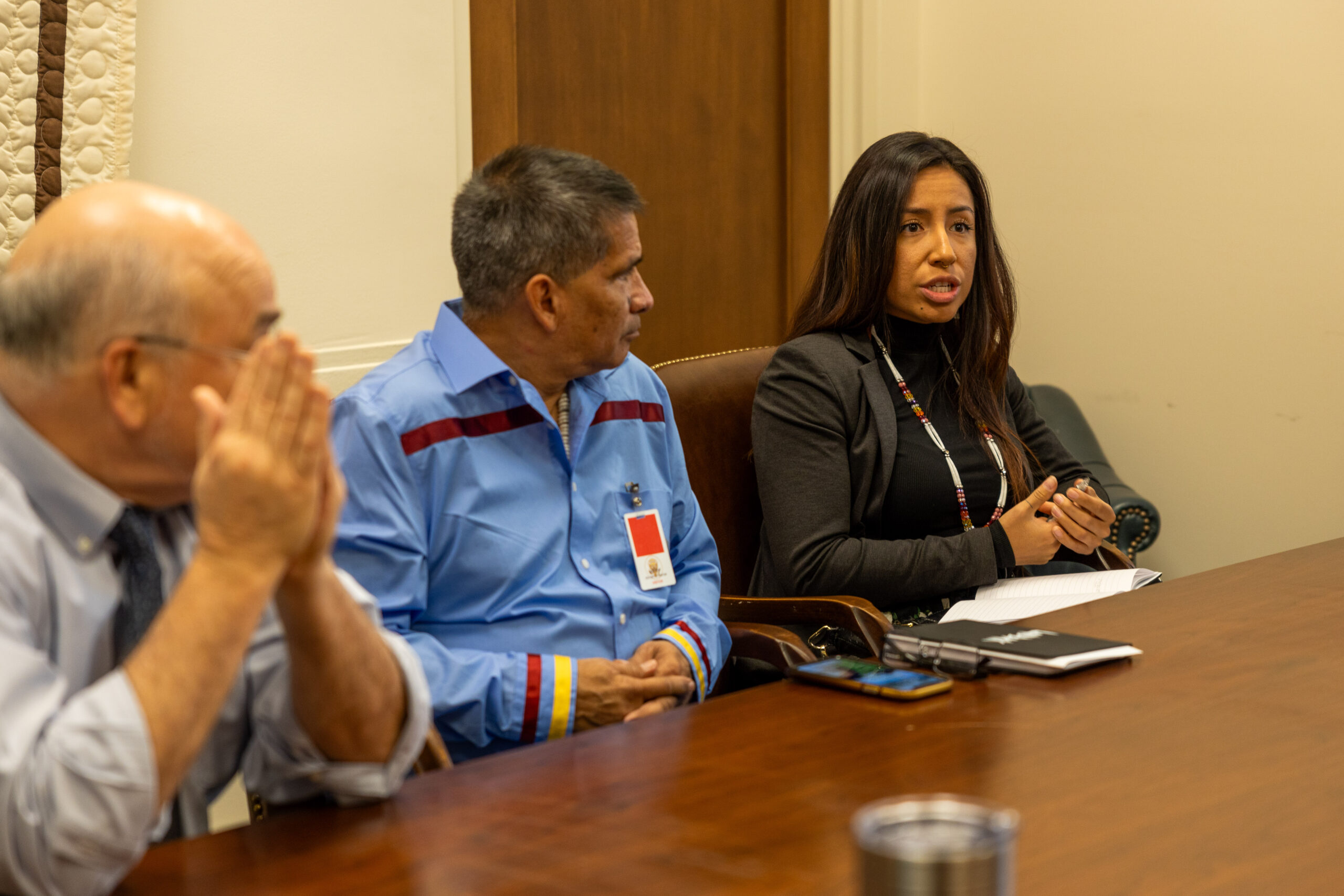
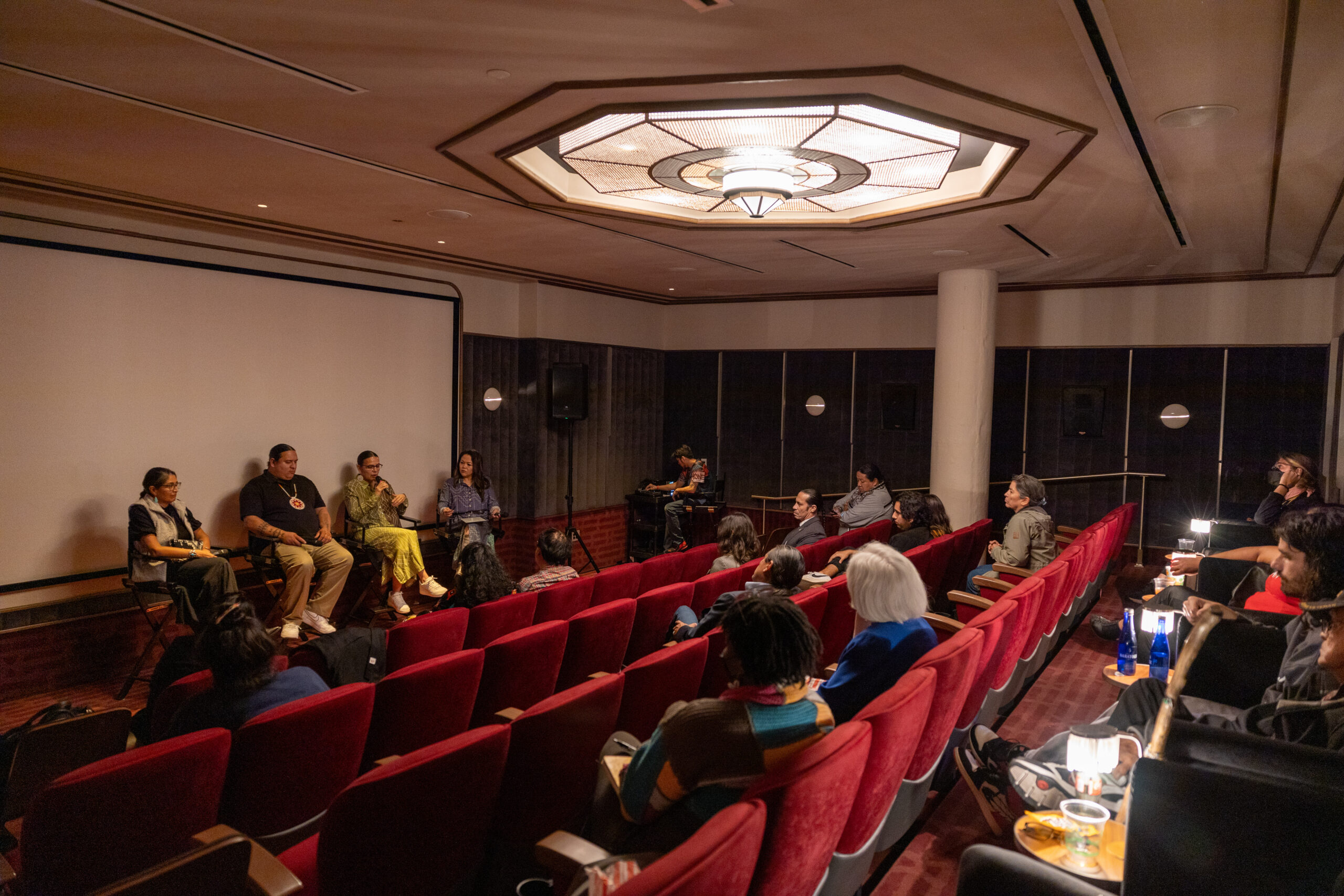
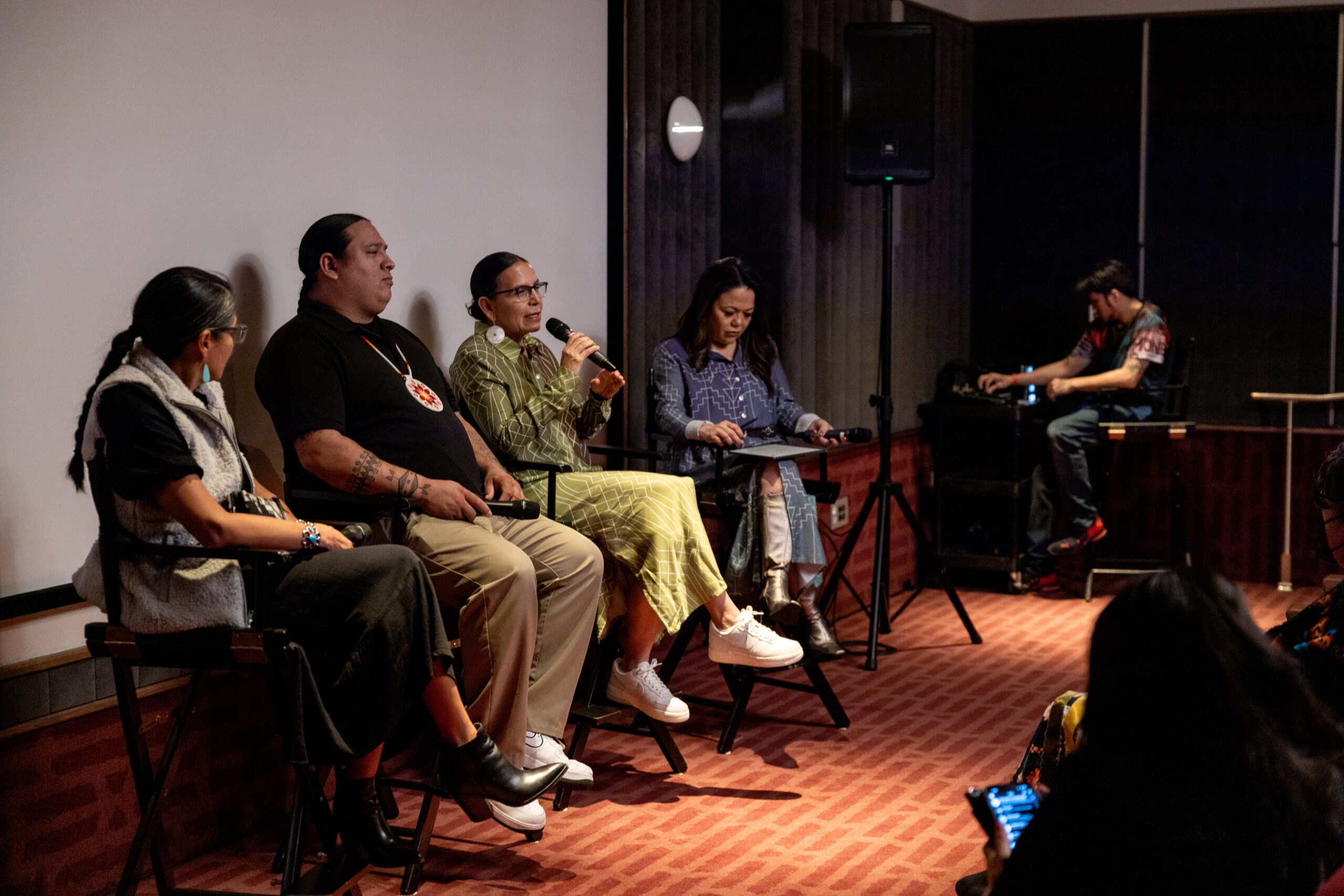
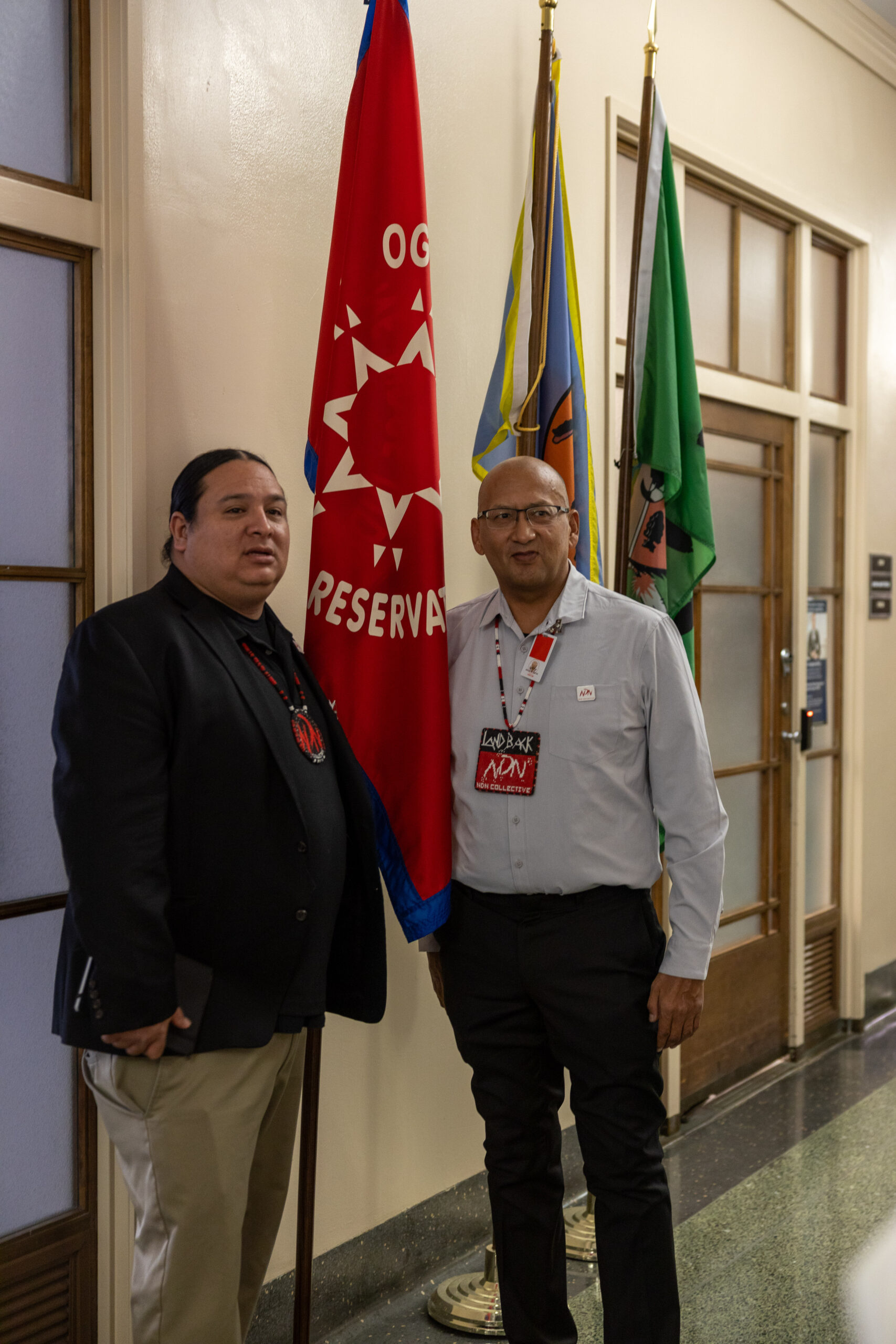
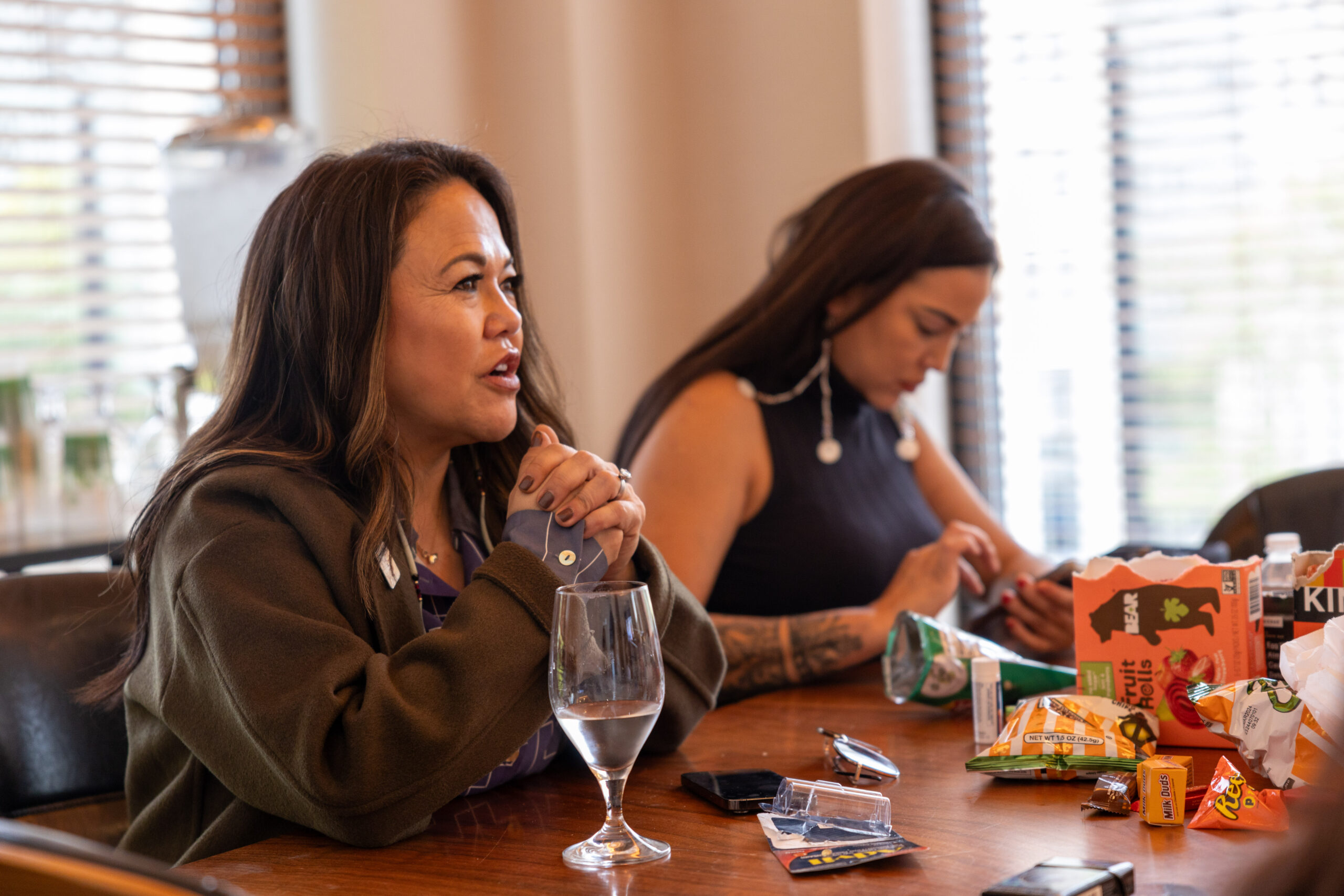
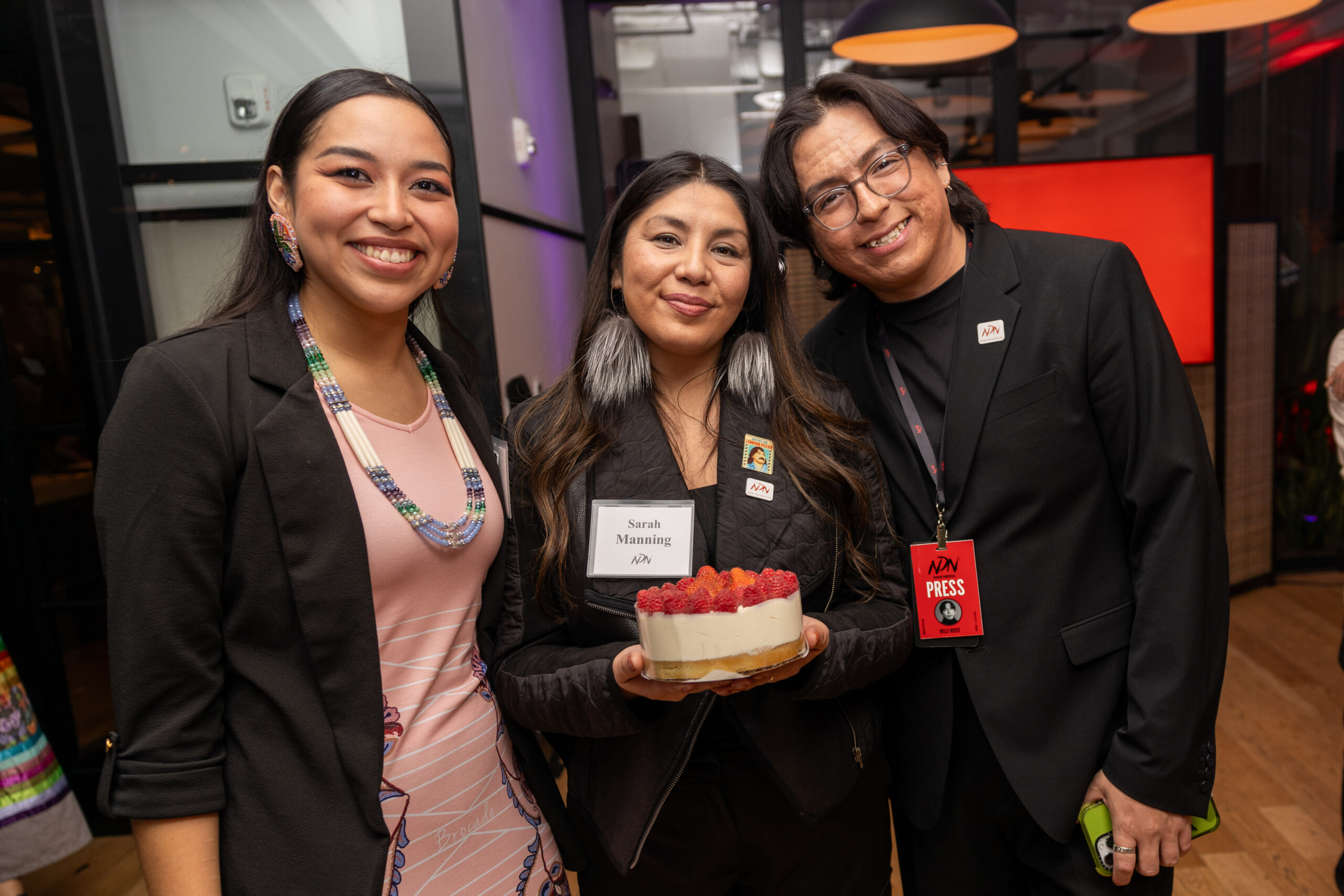
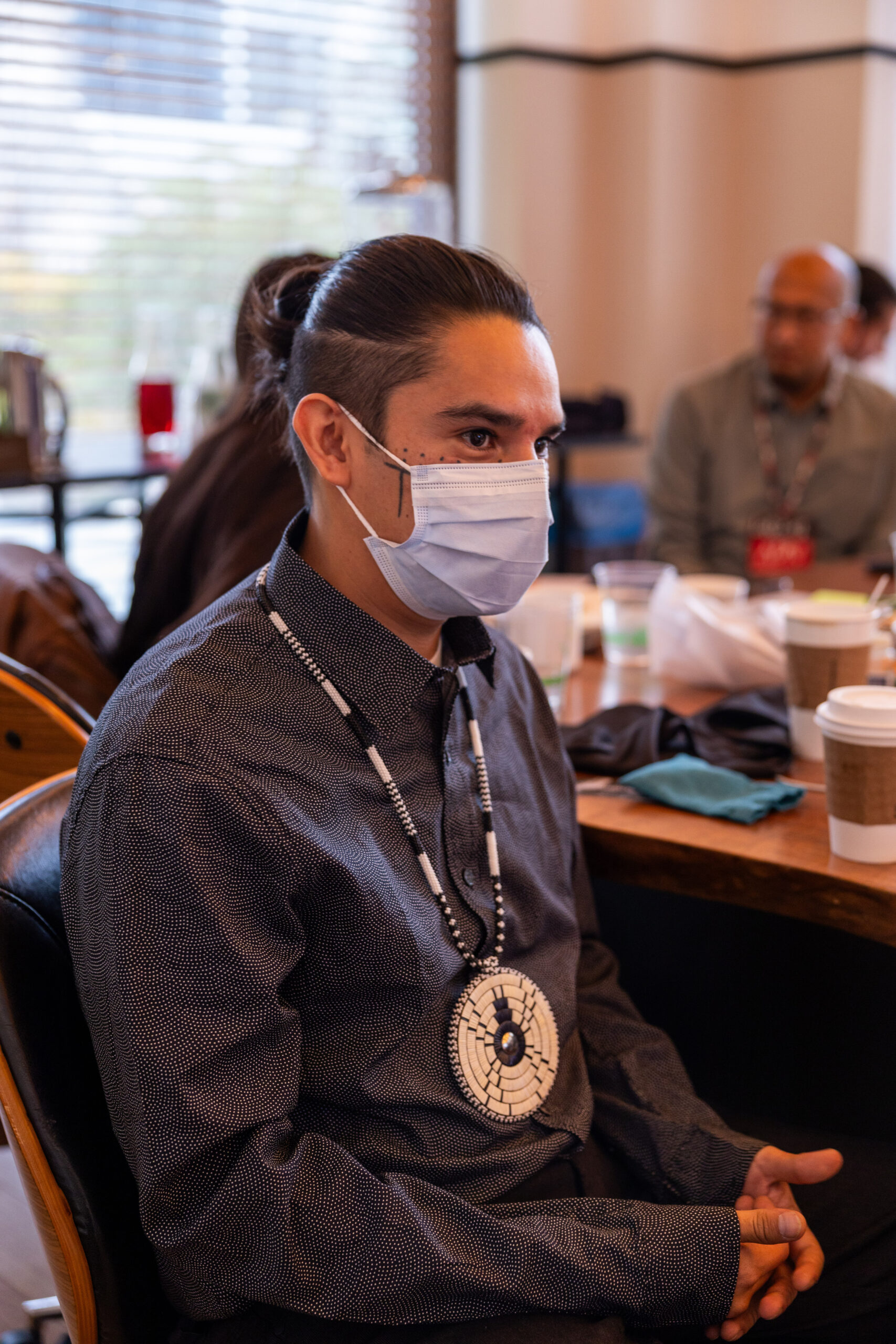
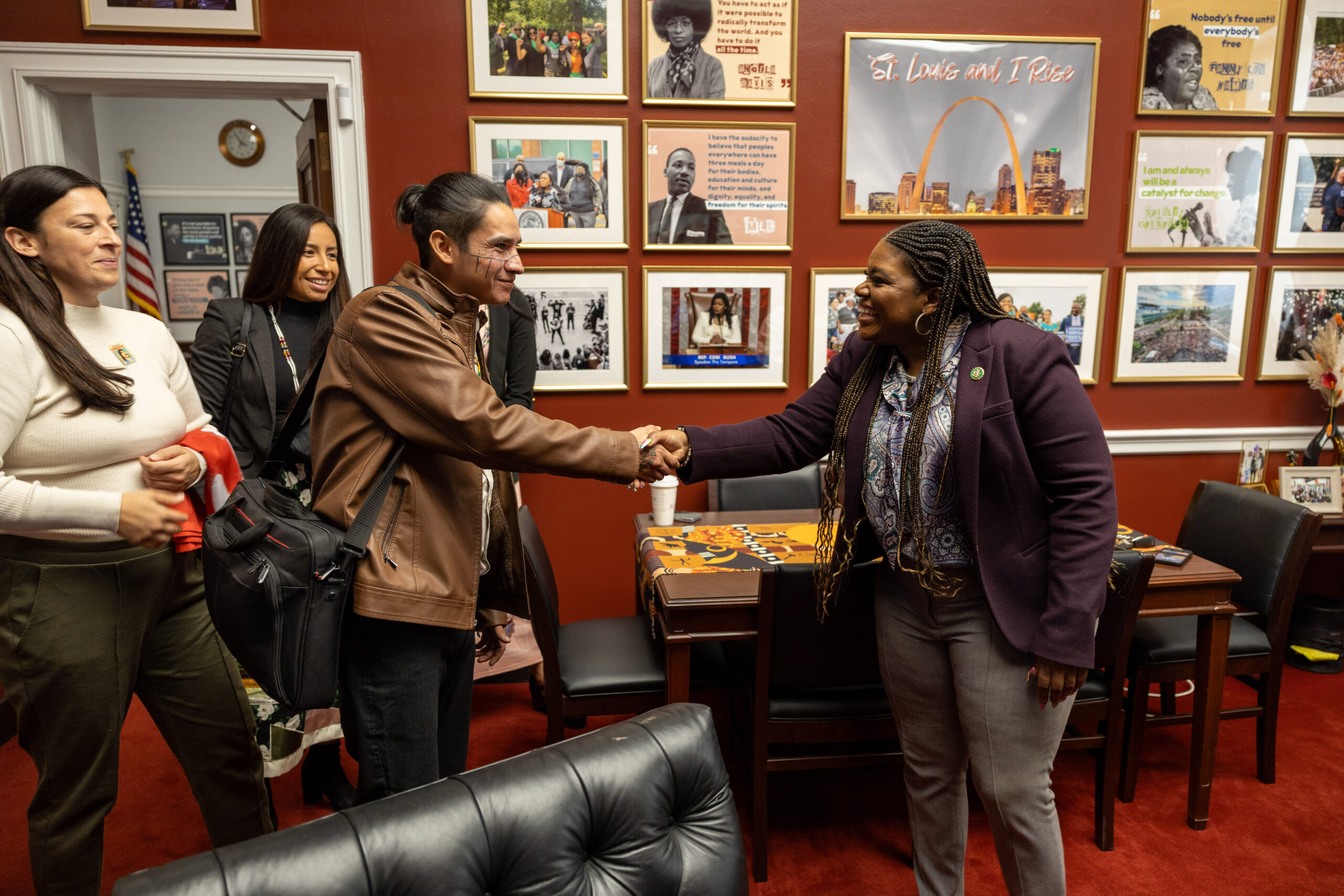
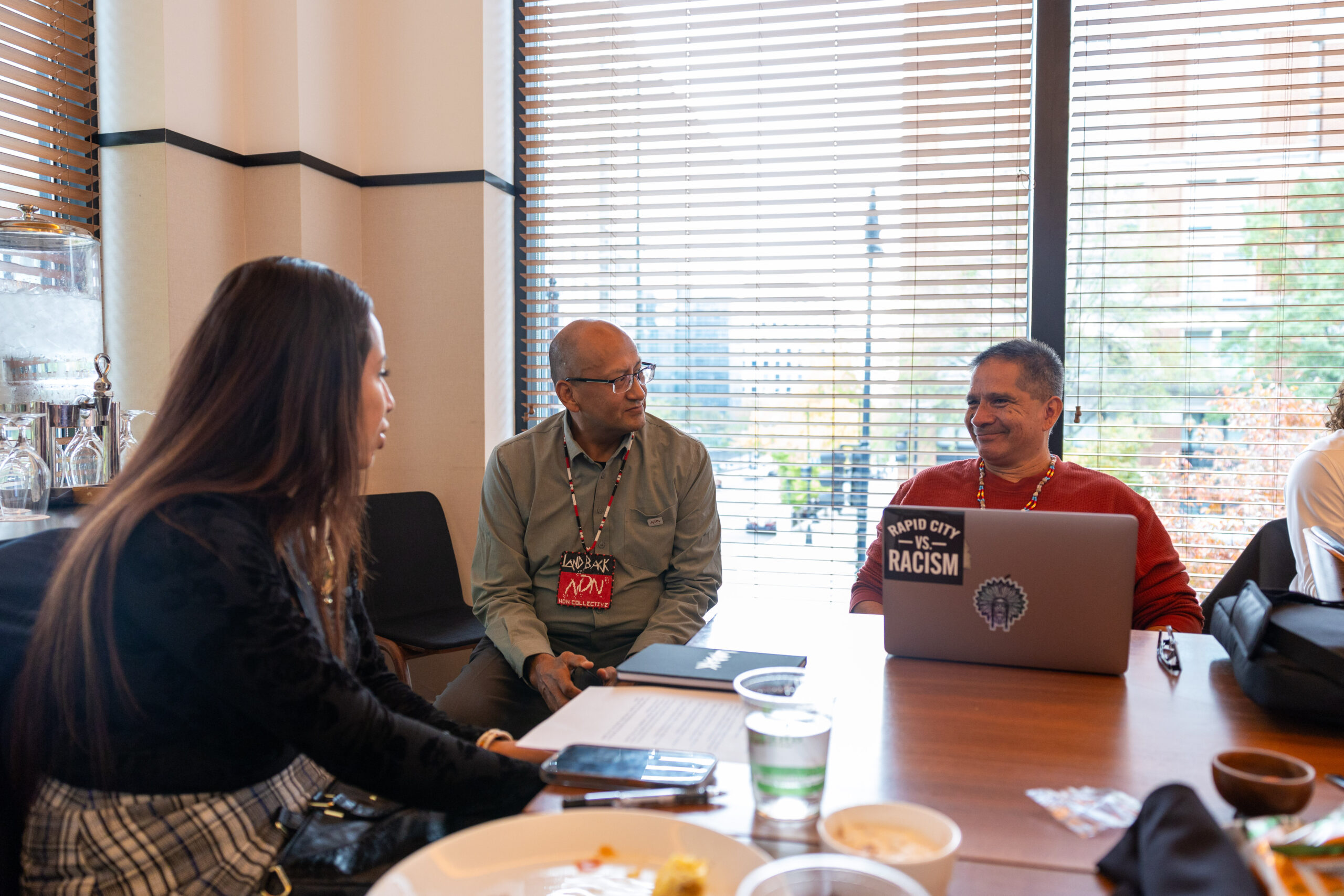
Support NDN Collective’s ongoing efforts around policy work
Sign up for updates on NDN Collective’s ongoing work to building Indigenous power
Related Stories
Press Release | NDN Collective Releases 5 Year Impact Report, Highlighting Groundbreaking Work to Empower Indigenous Peoples
Blog | NDN Collective Gives Voice to Indigenous Issues During ‘Impact Days’ Visit to Capitol Hill
NDN Live | Nick Tilsen, NDN Collective President and CEO, reflects on Impact Days in Washington, D.C.
